Gastropod
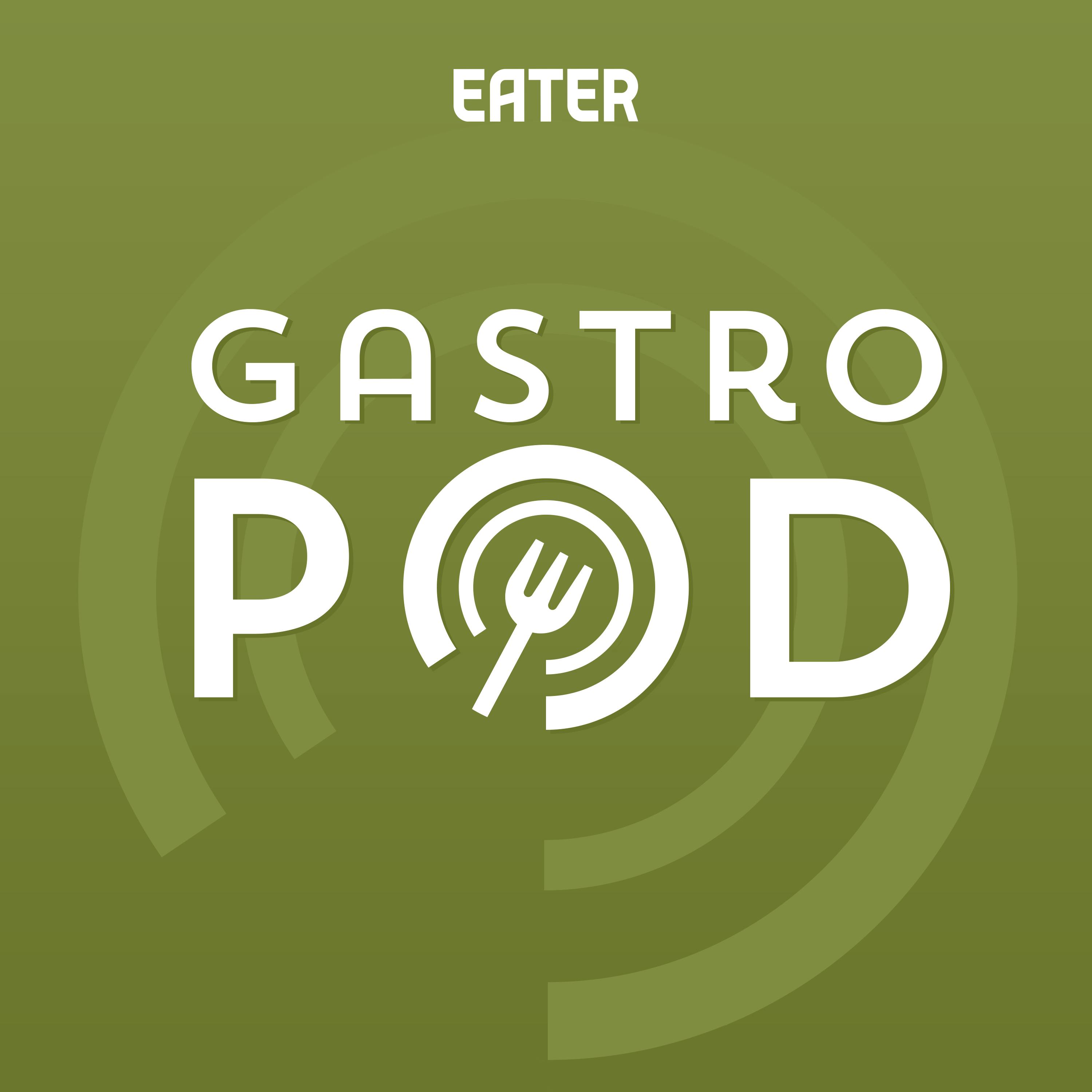
Arts
Cynthia Graber and Nicola Twilley
Food with a side of science and history. Every other week, co-hosts Cynthia Graber and Nicola Twilley serve up a brand new episode exploring the hidden history and surprising science behind a different food- or farming-related topic, from aquaculture to ancient feasts, from cutlery to chile peppers, and from microbes to Malbec. We interview experts, visit labs, fields, and archaeological digs, and generally have lots of fun while discovering new ways to think about and understand the world through food. Find us online at gastropod.com, follow us on Twitter @gastropodcast, and like us on Facebook at facebook.com/gastropodcast.

Bringing Salmon Home: The Story of the World's Largest Dam Removal Project
The Klamath River on the California-Oregon border was once the third largest salmon river in the continental U.S. There were so many fish, indigenous histories claim that you could cross the river walking across their backs—which made the peoples who lived in this remote, beautiful region some of the wealthiest in pre-colonial North America. But, for more than a century, salmon have been shut out of the Klamath: thanks to multiple hydroelectric dams that blocked the river, these fish couldn’t reach miles of cold, clear waters where they historically spawned. Their population plummeted to the point where even catching salmon for traditional ceremonies was banned, to help the few remaining fish survive. In just the past couple of months, however, the dams have come down, thanks to a scrappy coalition of local tribes, commercial fishermen, and environmental groups who spent decades fighting to free the Klamath—and bring the salmon home. Listen in this episode for the epic tale of the largest dam removal project in history—but also for the much bigger story of why these fish matter, and what it will take to make the Klamath their home again.
Learn more about your ad choices. Visit podcastchoices.com/adchoices
01:02:5004/11/2024

Potatoes in Space! (encore)
Today, a half century after Neil Armstrong took one small step onto the surface of the Moon, there are still just ten humans living in space—the crew of the International Space Station. But, after decades of talk, both government agencies and entrepreneurs are now drawing up more concrete plans to return to the Moon, and even travel onward to Mars. Getting there is one thing, but if we plan to set up colonies, we'll have to figure out how to feed ourselves. Will Earth crops grow in space—and, if so, will they taste different? Will we be sipping spirulina smoothies and crunching on chlorella cookies, as scientists imagined in the 1960s, or preparing potatoes six thousand different ways, like Matt Damon in The Martian? Listen in this episode for the stories about how and what we might be farming, once we get to Mars. (encore presentation)
Learn more about your ad choices. Visit podcastchoices.com/adchoices
47:5629/10/2024

Absinthe: The World's Most Dangerous Drink?
To painters and poets in late-1800s France, absinthe was "the green muse" or the "green fairy," an almost magical potion that promised vivid dreams, wild ideas, and artistic inspiration with every sip. By the 1910s, this once incredibly popular herbal liquor was banned—not only in France, but in countries around the world. Condemned as the cause of both individual ruin and social decline, absinthe consumption was blamed for seizures, memory gaps, hallucinations, and even murderous rage. So what's the deal: is absinthe just a drink, or is it actually deadly? This episode, we've got the story behind the myths, from witchy distillers to women on bicycles, and military rations to pre-ban bottles. Join us for the trip!
Learn more about your ad choices. Visit podcastchoices.com/adchoices
45:1415/10/2024

From Trash to Treasure: Why's It So Hard to Save Restaurant Leftovers From the Dumpster?
Every day, at the end of service, restaurants throw away tons of entirely edible food: heaps of pastries and whole loaves of bread, vegetables chopped but not cooked, noodle dough, fish off-cuts, and more. An estimated 20 billion meals's worth of still edible food overall is tossed every year here in the US, and more than 85 percent of it ends up in the landfill. Meanwhile, more than one in ten Americans are food insecure. So why is it so hard to keep all of that perfectly good food out of the trash and get it onto people’s plates instead? This week, we’re taking a deep dive into the dumpster (not literally!), to explore the most innovative and surprising new solutions to this toughest of food challenges, including the wizards transforming everything from stale bagels to gallons of banana cream concentrate into a delicious dinner. Did someone order meals, not methane? Oui chef!
Learn more about your ad choices. Visit podcastchoices.com/adchoices
48:5601/10/2024

Smashing Pumpkin Myths: What's Big, Orange, and Having an Identity Crisis?
It’s already begun: that time of the year now known across the land as Decorative Gourd Season. Squash are everywhere—carved into jack o’lanterns on front porches, adorning our sideboards and porches with strange shapes and autumn colors, and of course, baked into pies for fall celebrations. But get ready to rethink squash, because despite their slightly cheesy House Beautiful vibe and family-friendly pumpkin patch associations, they are—and we quote—"the most interesting plants in the world." Join us this episode as we explore our surprisingly long entanglement with the cucurbit family, from its star role as the very first plant domesticated in the Americas to the can of Libby's behind nine out of every ten pumpkin pies. Along the way, we figure out what on Earth the difference actually is between a squash and a pumpkin, and we get a sneak peek into the weird and wonderful world of giant pumpkins, where growers compete to break the two-ton barrier with fruits the size of a compact car.
Learn more about your ad choices. Visit podcastchoices.com/adchoices
47:1517/09/2024

Meet the Queen of Kiwi: The 96-Year-Old Woman Who Transformed America's Produce Aisle (ENCORE)
The produce section of most American supermarkets in the 1950s was minimal to a fault, with only a few dozen fruits and vegetables to choose from: perhaps one kind of apple, one kind of lettuce, a yellow onion, a pile of bananas. Today, grocery stores routinely offer hundreds of different fruits and vegetables, many of which would be unrecognizable to time travelers from a half century ago. What changed, and how did Americans learn to embrace spaghetti squash, sugar snap peas, and kiwi fruit? This episode, we tell the story of the woman behind this transformation: Frieda Caplan, the Queen of Kiwi. (Encore)
Learn more about your ad choices. Visit podcastchoices.com/adchoices
48:0010/09/2024

Deli is Short For Delicious—But Are Your Pastrami and Bologna Sandwiches Giving You Cancer?
School’s back in session, and kids are boarding the bus with lunchboxes in tow. Many of them contain sandwiches stuffed with turkey and ham slices, bologna, even salami—but where did these staples of the lunch break, not to mention the charcuterie platter, come from? Long before the 1900s meat-cute that birthed the deli sandwich, preserved meats were a standby in human diets: from dried yak cured in salt in the Himalayas, to pork fermented into salami in Italy, to beef pressed in the saddle and pickled in horse sweat in Central Asia, people all over the world invented ways to make meat inhospitable to microbes, more portable—and even more delicious! But, in recent years, these meats have gotten a bad name: in 2015, the World Health Organization even labeled them a carcinogen. So should you chuck the corned beef for the sake of your health? This episode, join us for a deep dive on the science behind whether your charcuterie could kill you—plus, the story of how cured meats became a staple of American diet and culture, thanks to German immigrants and Jewish delis, military-manufactured meat glue, and some truly orgasmic sliced pastrami on rye.
Learn more about your ad choices. Visit podcastchoices.com/adchoices
53:1903/09/2024

What's the Buzz on Eating Bugs? Can Insects Really Save the World?
About ten years ago, insects were constantly being hyped as the future of food. Headlines proclaimed that, within the decade, everyone would be eating bugs as part of their daily diet—and saving the planet in the process. But while the buzz on edible insects hasn’t completely turned to crickets, the ento-revolution hasn't proceeded exactly as planned. In the Western world, insects are not yet what's for dinner, and, even in parts of the world where bugs are a traditional and treasured part of the cuisine, their consumption is on the decline. So what's the deal? Can edible insects really help solve climate change and world hunger? And, if so, what's stopping us from jumping on the bug bandwagon? Listen in this episode as we debunk insect conspiracy theories and sexist archaeology, savor tangy ants and a cicada bonanza, and visit Madagascar to tell the heart-warming tale of how a bacon-flavored bug is helping feed villagers, while saving an adorable primate.
Learn more about your ad choices. Visit podcastchoices.com/adchoices
57:2520/08/2024

The Billion Dollar War Behind U.S. Rum (Planet Money)
When you buy a bottle of rum in the United States, by law nearly all the federal taxes on that rum must be sent to Puerto Rico and the U.S. Virgin Islands. It's an unusual system that Congress designed decades ago to help fund these two U.S. territories. In 2021 alone, these rum tax payments added up to more than $700 million. Puerto Rico and the Virgin Islands split the money according to how much rum each territory produces. And the territories produce a lot of it — especially Puerto Rico, which single handedly supplies the majority of the rum that Americans drink. But in 2008, the U.S. Virgin Islands pulled off a coup. It convinced one of the largest rum brands in the world, Captain Morgan, to abandon Puerto Rico and to shift its operations to the tiny island of St. Croix. This was the beginning of the Rum Wars. Listen in to the story of how this war turned the two territories into bitter rivals—and put hundreds of millions of U.S. taxpayer money in the pockets of big liquor companies. (Guest episode)
Learn more about your ad choices. Visit podcastchoices.com/adchoices
42:4806/08/2024

The Interstitium (Radiolab)
Guest episode: In this episode we introduce you to a part of our bodies that was invisible to Western scientists until about five years ago; it’s called "the interstitium," a vast network of fluid channels inside the tissues around our organs that scientists have just begun to see, name, and understand. Along the way we look at how new technologies rub up against long-standing beliefs, and how millions of scientists and doctors failed to see what was right in front (and inside!) of their noses. We also find out how mapping the anatomy of this hidden infrastructure may help solve one of the fundamental mysteries of cancer, and perhaps provide a bridge between ancient and modern medicine.
Learn more about your ad choices. Visit podcastchoices.com/adchoices
59:5523/07/2024

Are Hush Puppies Racist? Is A2 Milk Really Healthier? And What's Up With Wedding Cake? Ask Gastropod!
You asked, and we’re answering—again! Ask Gastropod returns to answer some of our listeners’ most pressing culinary queries: how did elaborate, expensive cakes become the standard dessert for weddings? Did the deep fried cornmeal blobs known as “hush puppies” get their name from Confederate soldiers or racist stories from the plantation-era South? And could a trendy "new" variety of milk (that's actually ancient) allow the dairy-intolerant to snarf down cheese and ice cream without digestive consequences? This episode, we’re diving deep on the science, dispelling some myths, and correcting the historical record with the help of a team of experts. Listen in now!
Learn more about your ad choices. Visit podcastchoices.com/adchoices
47:3709/07/2024

Why Does Everyone Have Food Allergies These Days?
It's not your imagination, food allergies are really on the rise. One recent study found that severe allergic reactions to food have increased by more than 300 percent over the past decade. And they don't just affect Americans or kids—they're on the rise in adults around the world. Even pets are getting food allergies. So what's going on? Why would your body decide that food—something that's actually essential to keeping you alive—needs to be attacked like a dangerous invader? And why would we evolve a defense mechanism that can end up killing us? This episode, we've got the history and the latest scientist on food allergies: what they are, what causes them, how they're different from food intolerance and sensitivity, and what we can do about them. Join us on a wild journey from ancient Pharoahs to the future of medicine, via jellyfish, Calvin Coolidge, and "rose fever," as we figure this all out.
Learn more about your ad choices. Visit podcastchoices.com/adchoices
55:4625/06/2024

The Bagelization of America (encore)
Today, it’s a breakfast staple, but, as recently as 1960, The New York Times had to define it for readers—as “an unsweetened doughnut with rigor mortis.” That’s right, this episode is all about the bagel, that shiny, ring-shaped, surprisingly dense bread that makes the perfect platform for cream cheese and lox. Where did it come from? Can you get a decent bagel outside New York City? And what does it have in common with the folding ping-pong table? Come get your hot, fresh bagel science and history here! (encore edition)
Learn more about your ad choices. Visit podcastchoices.com/adchoices
56:0418/06/2024

The Birth of Cool: How Refrigeration Changed Everything
For as long as we’ve been making Gastropod, co-host Nicky has also been working on another project: writing a book all about refrigeration. Well, time to pop the champagne you’ve had stashed in the icebox, because that book comes out June 25—and we’re giving Gastropod listeners an exclusive preview! This episode, Cynthia and Nicky talk about how a high school dropout's get-rich-quick scheme, some deadly explosions, and lots and lots of beer brought us the humming boxes of cold now ubiquitous in the modern kitchen—and how the proliferation of this portable, on-demand winter has transformed our food (not always for the better) while heating up our planet. It's almost impossible to imagine living without a fridge, but Nicky’s book totally changed the way we look at preserving food. Is there a better way? Listen to find out, and for the rest of the story, be sure to pre-order Frostbite: How Refrigeration Changed Our Food, Our Planet, and Ourselves!
Learn more about your ad choices. Visit podcastchoices.com/adchoices
53:1511/06/2024

Omega 1-2-3 (encore)
Based on all the hype, you'd be forgiven for believing that the fish oils known as omega-3s are the solution to every problem. Heart disease, dementia, depression, even obesity—the list of ailments that experts claim a daily dose of omega-3 can help prevent seems endless. And with more than ten percent of Americans taking a capsule of fish oil daily, omega-3s are one of the most profitable supplements in the world, too. Listen in this episode, as author Paul Greenberg and scientist JoAnn Manson help us figure out what these supposedly miracle molecules are, and what consuming them is doing to our bodies—and to our oceans. (Encore presentation)
Learn more about your ad choices. Visit podcastchoices.com/adchoices
49:3004/06/2024
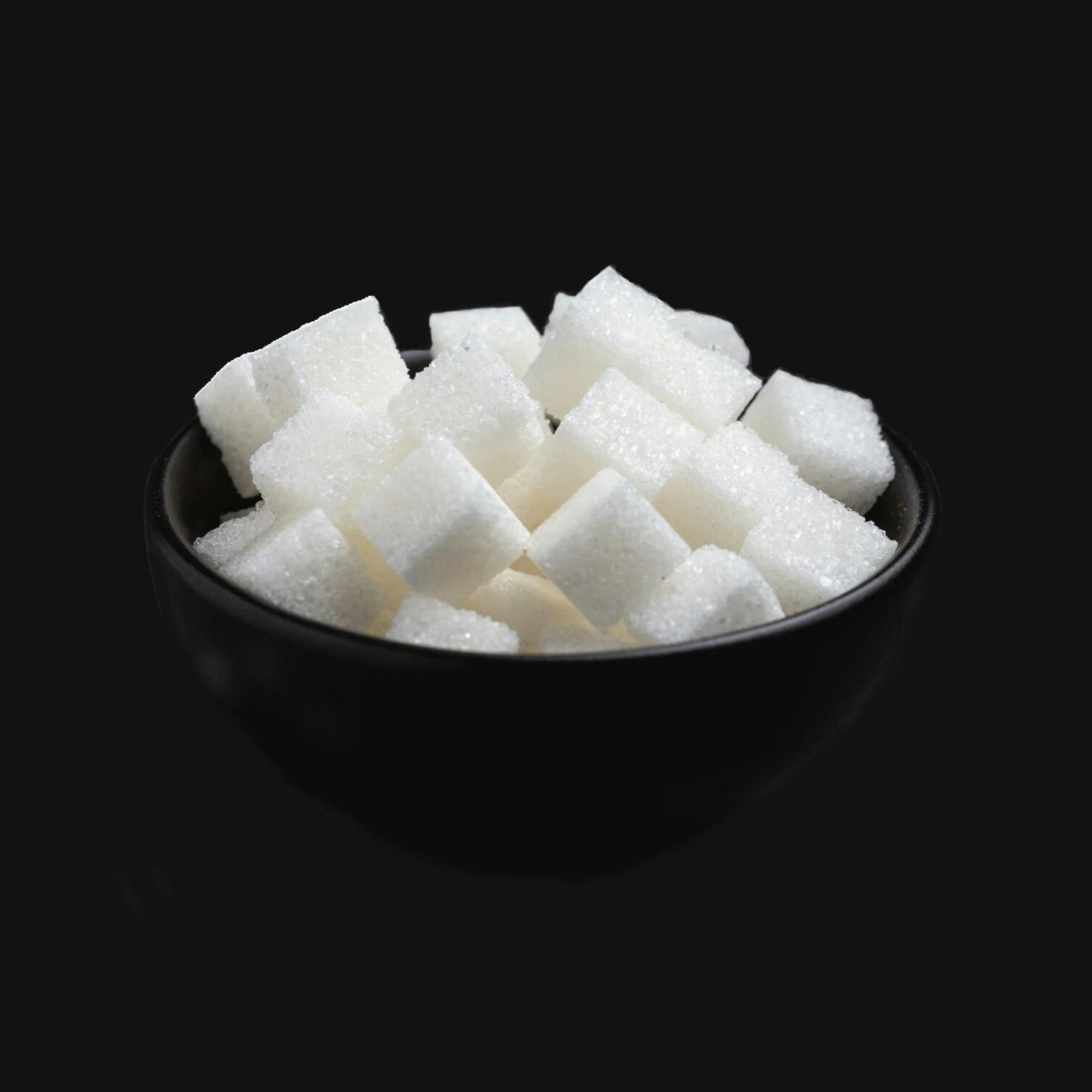
Sugar's Dark Shadow
Your pantry's sweetest ingredient has an extremely bitter history. The sap-producing grass known as sugarcane has been grown and enjoyed by humans for at least 10,000 years, but it was only relatively recently that it went from a luxury to an everyday ingredient—a change that also triggered genocide, slavery, and the invention of modern racism. In this episode, how the Crusades got Europeans addicted to the sweet stuff, and how that appetite deforested southern Europe and kicked off the trade in enslaved Africans, before decimating indigenous populations in the New World and codifying racism into law. It's a dark story that involves Christopher Columbus' mistress, the early human rights advocate whose campaign to save indigenous people encouraged the horrors of the transatlantic slave trade, and a trip to southern Louisiana, where we met Black sugarcane farmers to explore sugar's troubling legacy there. No sugar coating here: join us for the fascinating and horrifying history of this household staple.
Learn more about your ad choices. Visit podcastchoices.com/adchoices
56:2028/05/2024

(Guest) Are Fast Food Jingles Pop Music?
From our friends at Switched on Pop: Where were you when you learned that the McDonald's jingle "I'm lovin' it" was originally part of a full-fledged pop song by Justin Timberlake and Pharrell that flopped on the charts but found staying power as a slogan? For us, it was recording our live episode about sponsored content in pop back in March 2024, and we have not been the same since. Shaken by this revelation, we found ourselves asking, "What else don't we know about fast food jingles?"
Turns out, it's a lot. From Taco Bell to Popeye's to Chili's, the music of fast food represent some of the most familiar melodies in society, across state lines and generations. But the stories behind those songs, and the way that fast food production and pop music production often move in parallel, was something we never saw coming.
Since we are music experts but amateur foodies, we invited the brilliant hosts of Gastropod, Cynthia Graber and Nicola Twilley, to help serve up the history of fast food and its changing role in culture. Tune in and pig out with us as we listen and debate the artistic and ethical implications of the sounds of fast food.
Learn more about your ad choices. Visit podcastchoices.com/adchoices
45:4821/05/2024
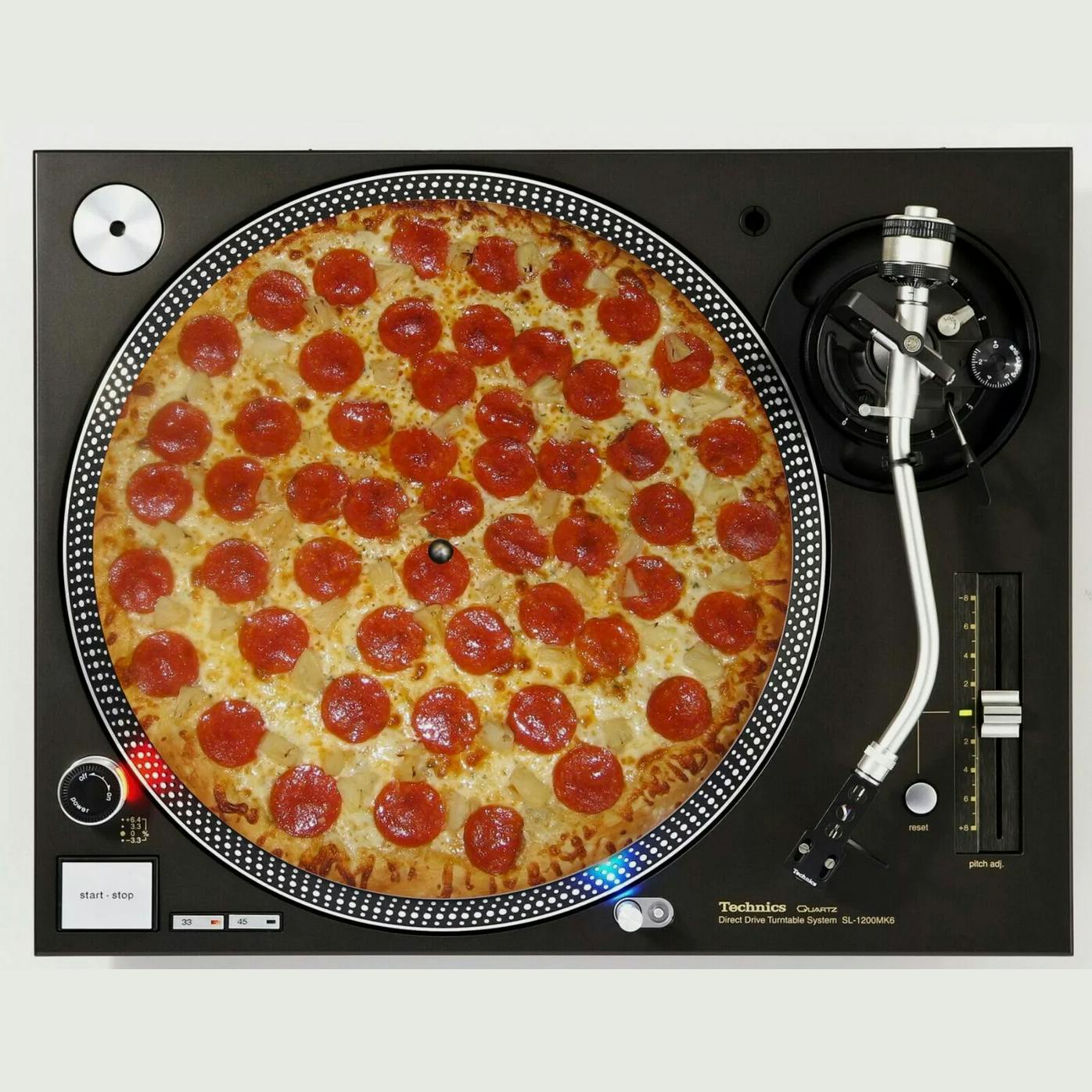
Why Are Restaurants So Loud? Plus the Science Behind the Perfect Playlist
When you go out for a meal, it’s not just what's on your plate that matters, it's what's in your eardrums, too. From dining rooms so loud you have to shout to be heard, to playlists that sound like a generic Millennial Spotify account, it's not surprising that sound is the single most complained about aspect of restaurants. This episode, Gastropod explores the science behind the sonic experience of eating. Are restaurants really getting louder, and, if so, why? What does it take to create the perfect acoustic environment for dining? Can restaurateurs design their playlists to make customers order more or eat faster? Listen in now for the secrets to culinary acoustic bliss!
Learn more about your ad choices. Visit podcastchoices.com/adchoices
48:2814/05/2024

The Food Explorer (encore)
You've probably never heard of David Fairchild. But if you've savored kale, mango, peaches, dates, grapes, a Meyer lemon, or a glass of craft beer lately, you've tasted the fruits of his globe-trotting travels in search of the world's best crops—and his struggles to get them back home to the United States. This episode, we talk to Daniel Stone, author of The Food Explorer, a new book all about Fairchild's adventures. Listen in now for tales of pirates and biopiracy, eccentric patrons and painful betrayals, as well as the successes and failures that shaped not only the way we eat, but America's place in the world. ENCORE
Learn more about your ad choices. Visit podcastchoices.com/adchoices
46:5707/05/2024
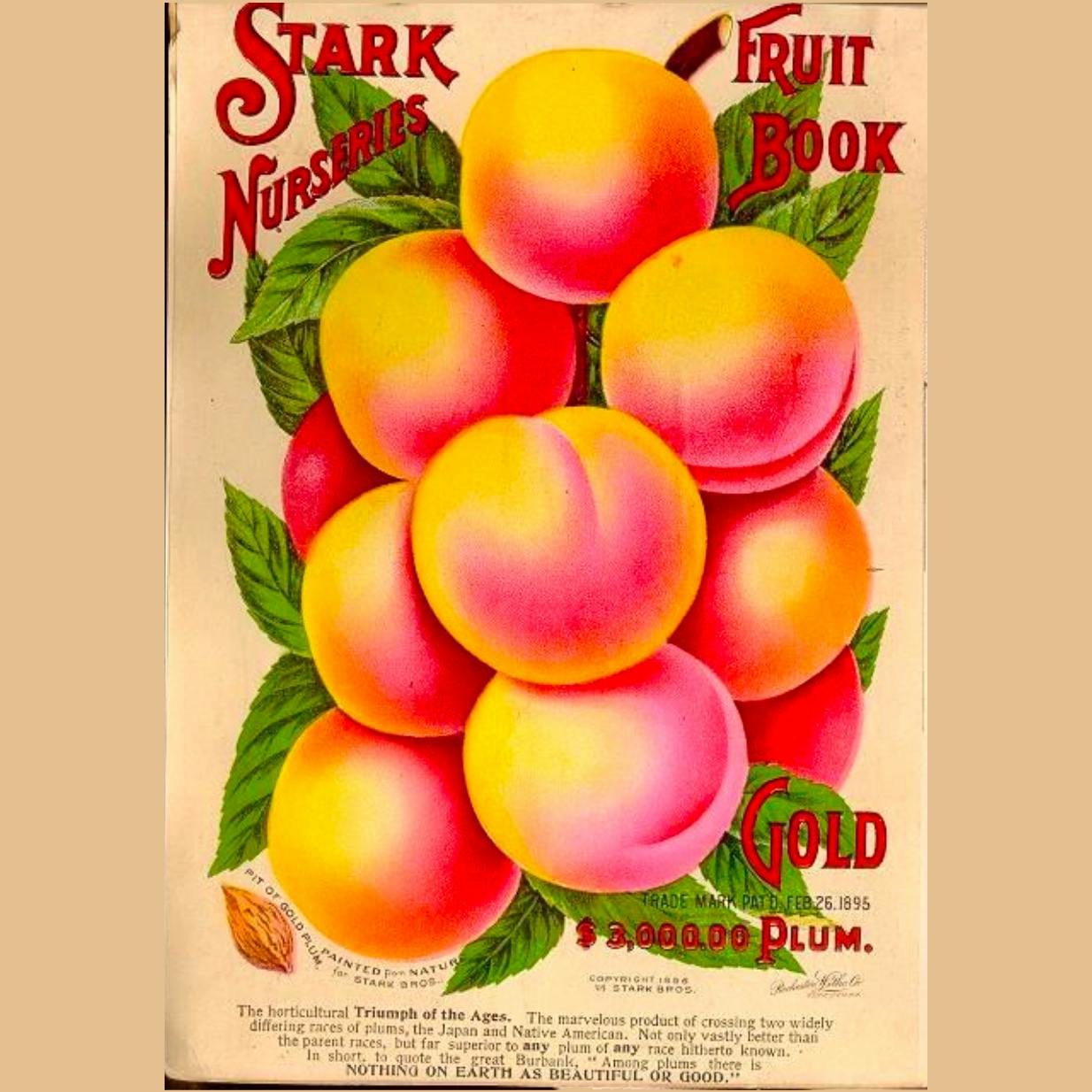
Meet the Most Famous American You’ve Never Heard Of: His Legacy is Excellent French Fries and Monsanto
In his day, Luther Burbank was a horticultural rock star: everyone from opera singers to movie stars and European royalty to an Indian guru traveled to Santa Rosa, California, to meet him. Dubbed the "plant wizard," Burbank invented the plumcot and the stoneless plum, the white blackberry, and the potato variety used in every French fry you've ever eaten—as well as some 800 more new-and-improved plants, from walnuts to rhubarb. His fame as a plant inventor put him in the same league as Thomas Edison—but, while Edison patented his light bulb and phonograph, Burbank had no legal way to protect his crop creations. Listen now for the story of Luther Burbank, the most famous American you've never heard of, and how his struggles shaped what's on our supermarket shelves today, but also led to a world in which big companies like Monsanto can patent life. It's a wild ride that involves the death spiral of the Red Delicious and the rise of the Cosmic Crisp apple, as well as coded notebooks, detective agencies, rogue farmers, and a resistance movement led by former New York City mayor (and subsequent airport namesake) Fiorello La Guardia.
Learn more about your ad choices. Visit podcastchoices.com/adchoices
56:4830/04/2024
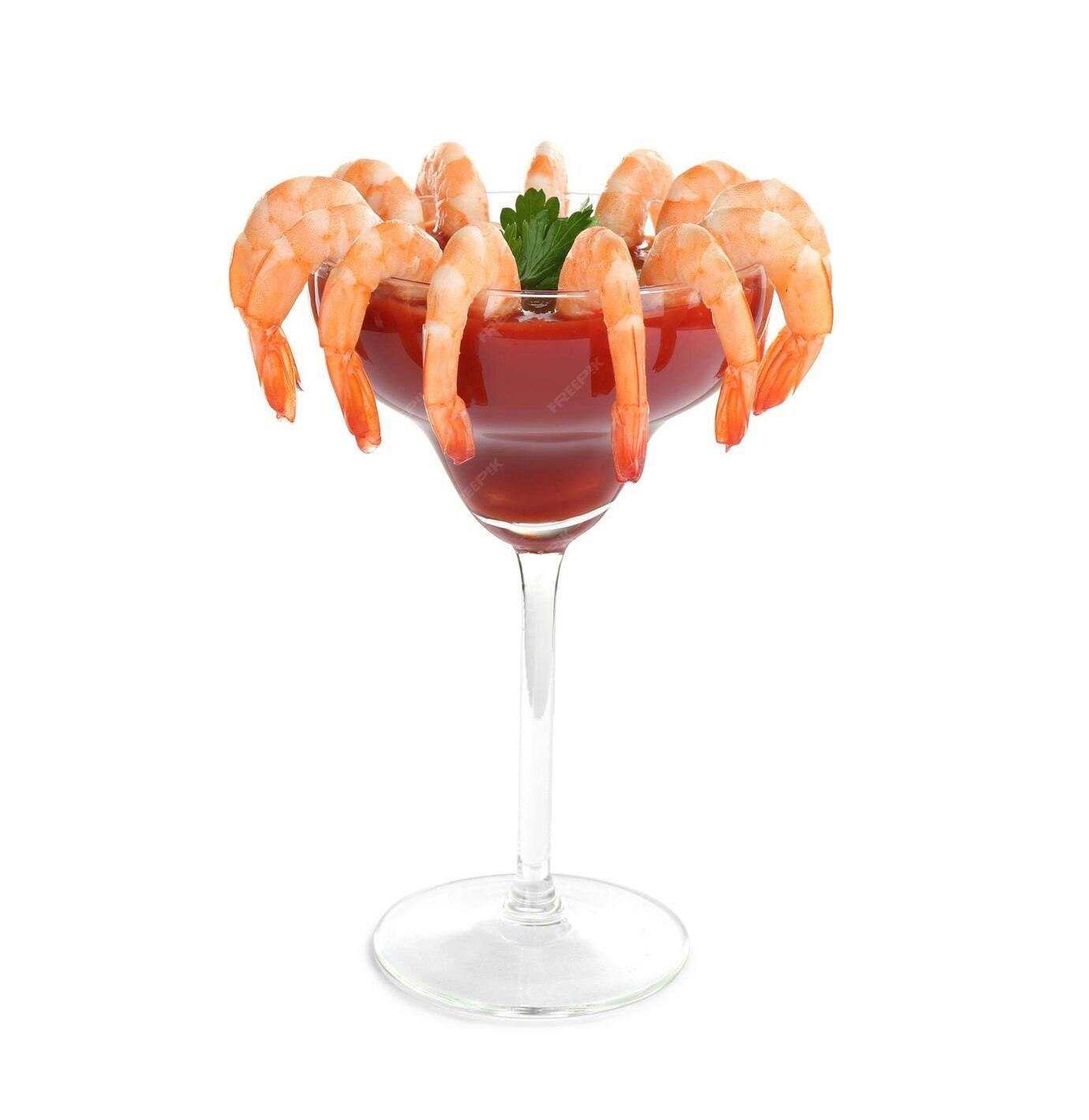
All You Can Eat: The True Story Behind America's Most Popular Seafood
Americans eat more shrimp than any other seafood: on average, each person in the US gobbles up close to six pounds of the cheap crustaceans every year. We can eat so many of these bug-like shellfish because they’re incredibly inexpensive, making them the stars of all-you-can-eat shrimp buffets and single-digit seafood deals. But we've got bad news: this is one bargain that's too good to be true. More than 90 percent of the shrimp we eat comes from overseas, where looser regulations lead to horrific labor abuses, environmental destruction, and the use of banned chemicals and antibiotics—all while American shrimpers struggle to survive. This episode, we’re exploring the history of how shrimp went from a fancy delicacy to buffet bargain (yes, Forrest Gump is involved), plus what to do if you want to enjoy everybody's favorite seafood with a clear conscience. Hold the cocktail sauce: this episode will change how you look at your favorite appetizer forever.
Learn more about your ad choices. Visit podcastchoices.com/adchoices
45:2116/04/2024
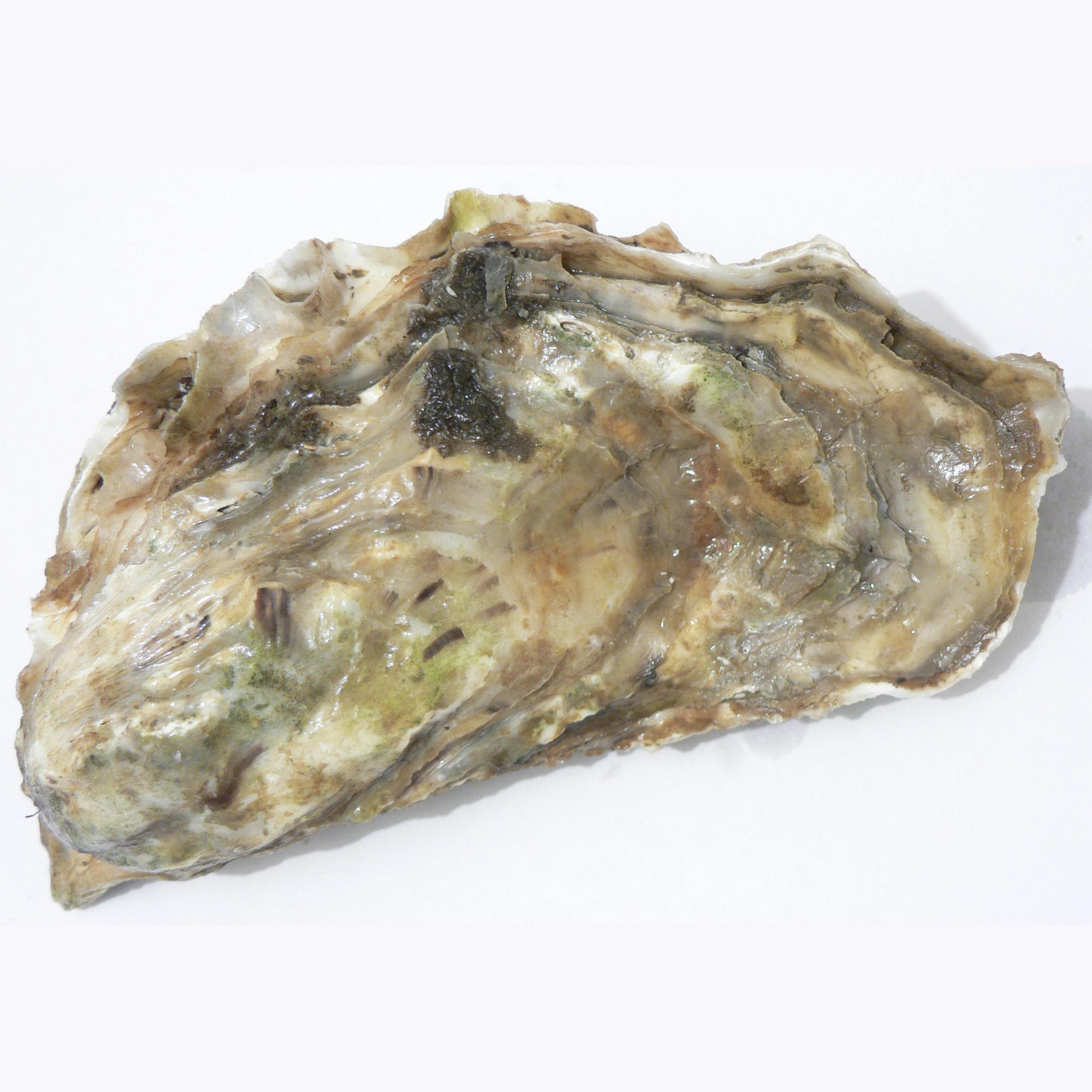
The World Is Your Oyster: How Our Favorite Shellfish Could Save Coastlines Worldwide
If we at Gastropod were asked to name a perfect food, the oyster would be at the top of our list. Oysters are pretty much always our answer to the question of what we'd like to eat this evening—but are they also the answer to the slow-motion disaster of disappearing coastlines worldwide? Join us this episode as we discover how this magical mollusk contains a pearl of hope in the fight to counter rising sea-levels, prevent erosion, and buffer storm surges everywhere from hurricane-hit New Orleans to New York City's flood-prone fringes. But be prepared: you just might join the ranks of the oyster obsessed.
Learn more about your ad choices. Visit podcastchoices.com/adchoices
50:2202/04/2024

Eat This, Not That: The Surprising Science of Personalized Nutrition (encore)
This episode, we've got the exclusive on the preliminary results of the world's largest personalized nutrition experiment. Genetic epidemiologist Tim Spector launched the study, called PREDICT, to answer a simple but important question: do we each respond to different foods differently? And, if so, why? How much of that difference is genetic, how much is due to gut microbes, and how much is due to any one of the dozens of other factors that scientists think affect our metabolic processes? You’ve heard of personalized medicine, will there be such a thing as personalized diets? And should there be? Can teasing out the nuances of how each individual body processes different foods make us all healthier? To find out, we signed ourselves up as study participants, sticking pins in our fingers, weighing our food, and providing fecal samples, all for science—and for you, dear listeners. Listen in now as we take part in this ground-breaking study, discover our own differences, and find out the early results! (Encore episode)
Learn more about your ad choices. Visit podcastchoices.com/adchoices
57:3026/03/2024
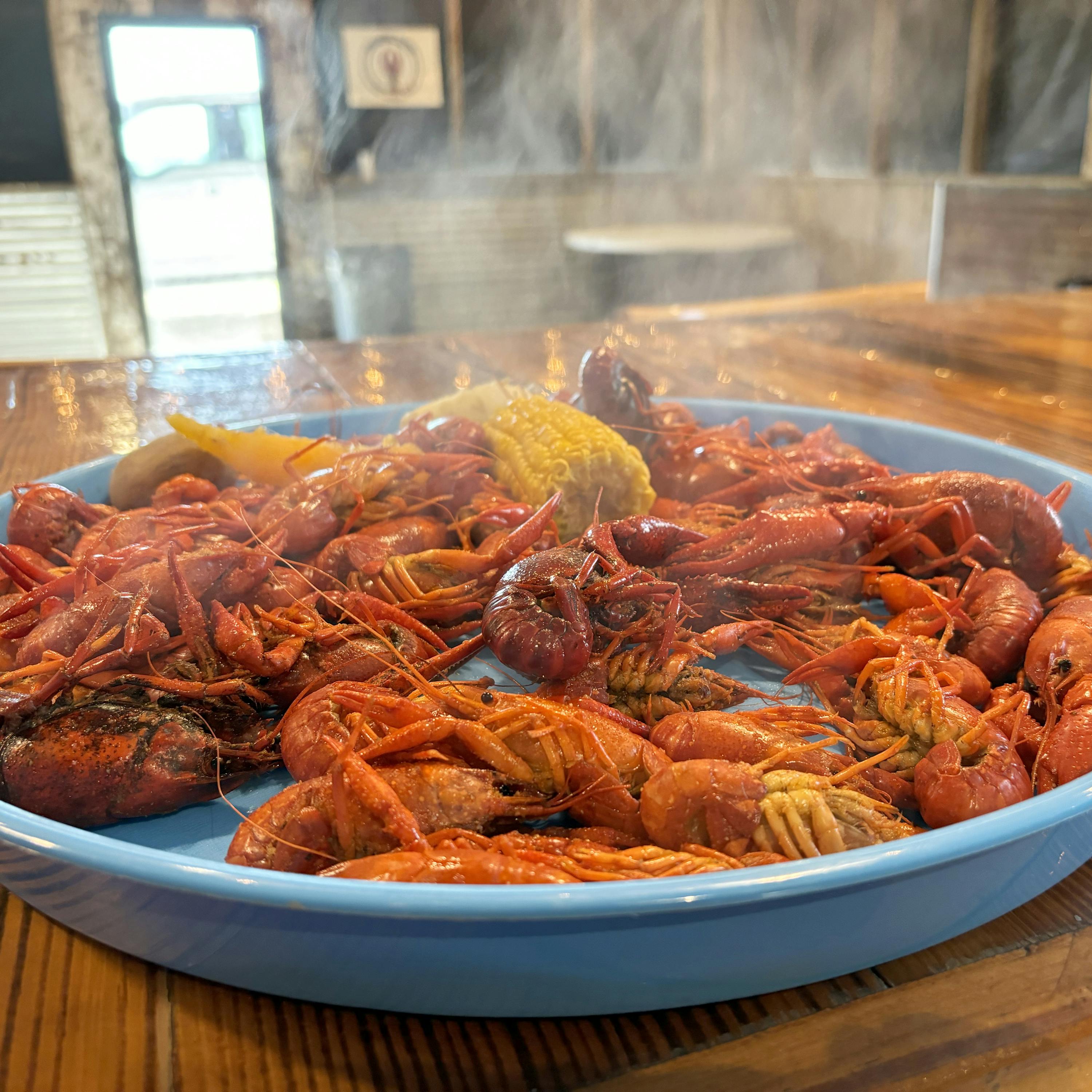
Bam! How Did Cajun Flavor Take Over the World?
If "Cajun-style" only makes you think of spicy chicken sandwiches and popcorn shrimp, you need to join us in the Big Easy this episode, to meet the real Cajun flavor. Cajun cuisine and its close cousin, Creole, were born out of the unique landscape of the Mississippi River delta, whose bounty was sufficient to support large, complex Indigenous societies, without the need for farming or even social hierarchies, for thousands of years. Europeans were slow to appreciate the wealth of this waterlogged country, but, as waves of French, Spanish, and American colonists and enslaved Africans arrived in Louisiana and the port of New Orleans, they all shaped the food that makes it famous today. But it would take a formerly enslaved woman turned international celebrity chef, a legendary restaurant that's hosted Freedom Riders, U.S. presidents, and Queen B, and a blackened redfish craze to turn Louisiana's flavorsome food into a global trend. Come on down to the bayou this episode, as we catch crawfish and cook up a storm to tell the story of how Cajun and Creole flavors ended up on home-cooking shows, in Disney movies, and at drive-throughs nationwide.
Learn more about your ad choices. Visit podcastchoices.com/adchoices
50:0119/03/2024

Anything's Pastable (Guest Episode)
After Dan’s pasta shape, cascatelli, was launched, people everywhere were cooking with it and sending him photos of what they were making. As exciting as that was, he was disappointed that most folks were only making a handful of well-worn dishes with this new shape. So Dan decided to write a cookbook to show the world that there’s so much more you can and should be putting on all your pasta shapes, cascatelli and beyond! There’s only one problem: he’s never written a recipe in his life. In this four-part series, Dan shares the inside story of creating his first cookbook, Anything’s Pastable — from the highs and lows of recipe testing, to a research trip across Italy, to the agonizing decisions over the design of the cover. Listen to this special guest episode of The Sporkful now.
Learn more about your ad choices. Visit podcastchoices.com/adchoices
48:3012/03/2024
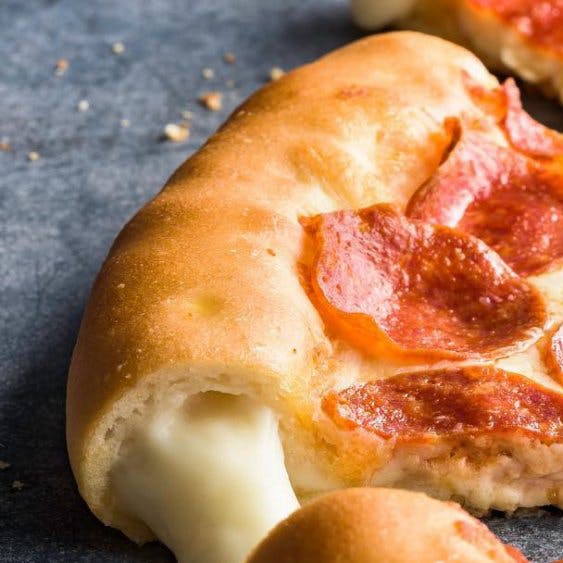
Can You Patent a Pizza?
Close your eyes and imagine this: a world without stuffed crust pizza. We know!—but that was the dismal state of the Italian flatbread scene before 1985, when Anthony Mongiello, aka The Big Cheese, came up with an innovation that loaded even more cheese onto pizza, while saving crusts nationwide from the trashcan. It was a multi-million dollar idea, Mongiello was sure—if only he could figure out how to protect his intellectual property and license it. But can you copyright the recipe for stuffing the crust? Could that puffy, cheese-filled rim be trademarked, or the technique for making it qualify as a trade secret? Can you patent a pizza? And did Pizza Hut, which unveiled their own stuffed crust pie in 1995, steal his idea—or does the concept of a cheesy crust belong to humanity as a whole? This episode, we're diving deep into the weird and wonderful world of food IP, via the legendary legal battles to defend Pepperidge Farm's Goldfish, Smucker's Uncrustables, and that futuristic mall treat of the 90s, Dippin' Dots ice cream. Listen in now for the true story of stuffed crust pizza—a story in which creativity, commerce, and lots and lots of cheese collide.
Learn more about your ad choices. Visit podcastchoices.com/adchoices
50:5805/03/2024
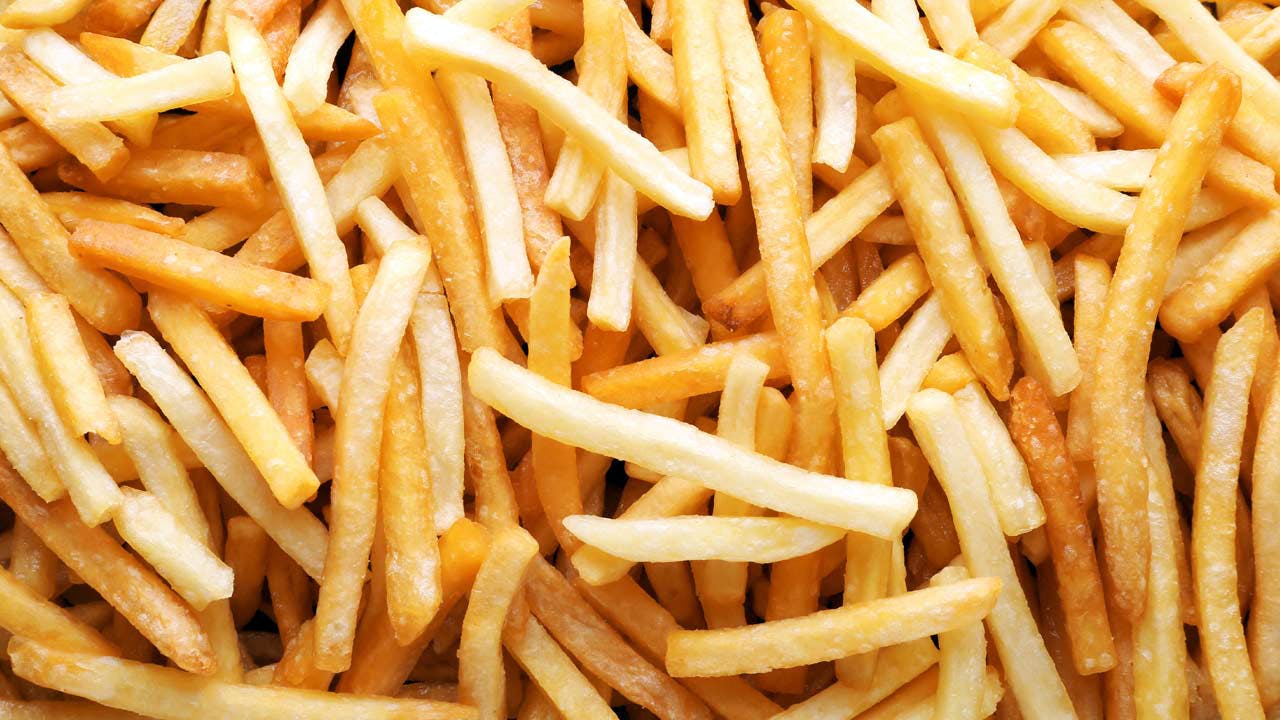
Super Fry: The Fight for the Golden Frite (encore)
Shoestring, waffle, curly, or thick-cut: however you slice it, nearly everyone loves a deep-fried, golden brown piece of potato. But that's where the agreement ends and the battles begin. While Americans call their fries "French," Belgians claim that they, not the French, invented the perfect fry. Who's right? This episode, we take you right into the heart of the battle that continues to be waged over who owns the fry—who invented it, who perfected it, who loves it the most? And then we take you behind the scenes into another epic fight: the struggle for the perfect fry. Can food scientists create a fry with the ultimate crispy shell and soft inside, one that can stay that way while your delivery driver is stuck in traffic? Plus, the condiment wars: does mayo really have the edge over ketchup? Listen in now to find out! (Encore episode)
Learn more about your ad choices. Visit podcastchoices.com/adchoices
44:3127/02/2024
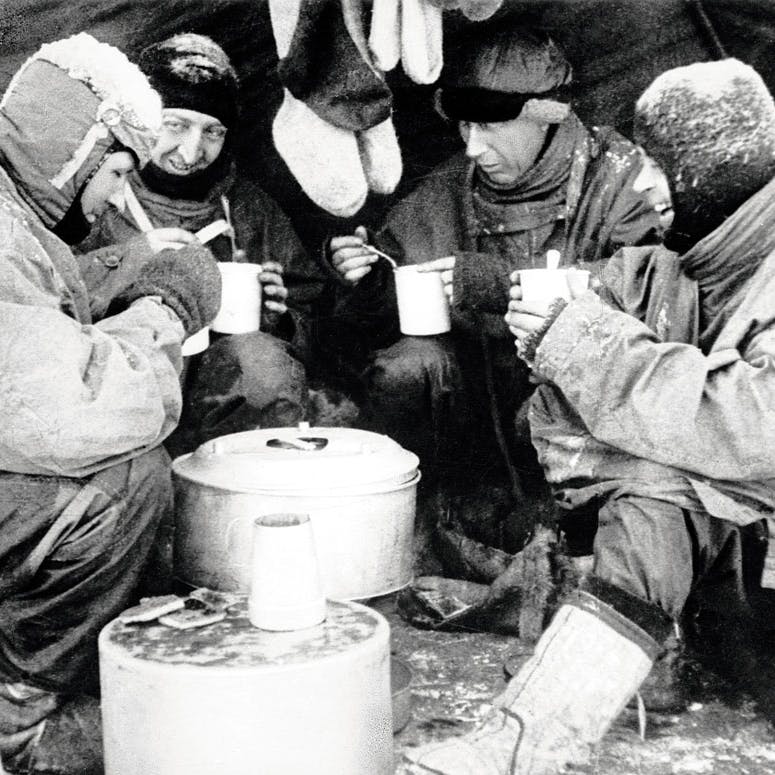
Dining at the (Other) Top of the World: Hunger, Fruitcake, and the Race to Reach the South Pole
In contrast to the abundance of the Arctic, in Antarctica, "once you leave the coast, you're basically heading to the moon." Jason Anthony, who spent several summers on the seventh continent, told us that in this desert of ice and stone (where the largest terrestrial animal is a tiny wingless midge), food isn't just important—it's everything. This episode is packed full of stories of survival at Earth's southernmost points, from Heroic Era expedition chefs whipping up croissants on the ice, to desperate Dorito auctions when supplies run low today. Plus, listen in now for the scoop on how food fueled the race to the South Pole—and determined the ultimate winner and loser.
Learn more about your ad choices. Visit podcastchoices.com/adchoices
44:3320/02/2024
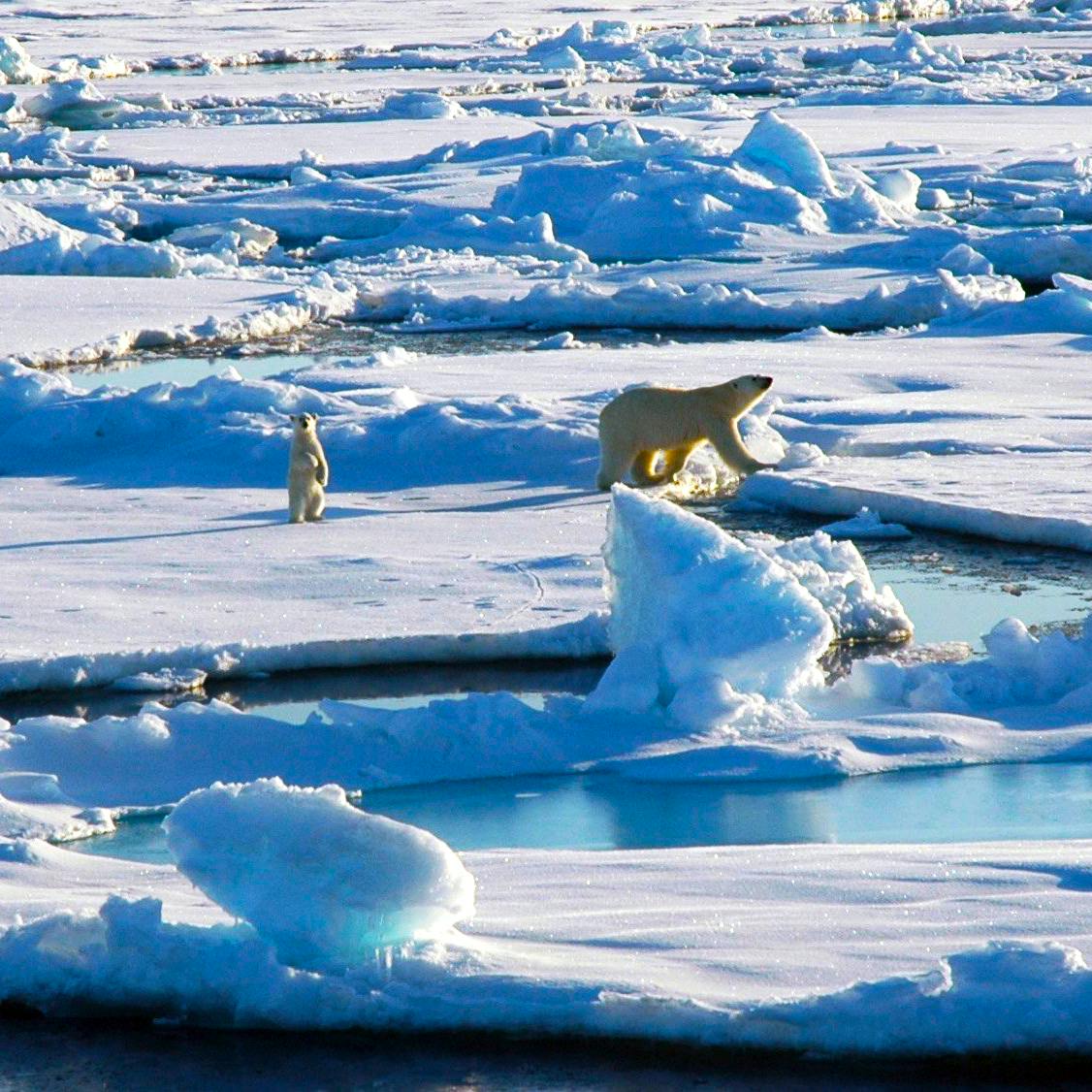
Dining at the Top of the World: Arctic Adaptation, Abundance, and...Ice Cream
You may feel like it's cold where you live, but in the Arctic, the average temperature is well below freezing all year round. In winter, it's also pitch black for weeks on end—not an ideal environment for growing food. Still, for thousands of years, people in the Arctic have thrived in a landscape that most outsiders would find fatally inhospitable. This episode, we point our compasses north on a journey to discover how traditional knowledge, ingenuity, and a lot of hard work—combined with genetics and microbes—have allowed the indigenous populations of the far North to not only successfully feed themselves, but also develop a distinctive and remarkable cuisine. Tune in now for the secrets of a dish that feels like Fourth of July fireworks in your mouth, the story of Iceland's second-most famous celebrity (after Björk), and the science behind how to avoid scurvy on an almost vegetable-free diet. Just don't forget your long underwear!
Learn more about your ad choices. Visit podcastchoices.com/adchoices
52:4106/02/2024

Cork Dork: Inside the Weird World of Wine Appreciation (encore)
“There’s the faintest soupçon of asparagus and just a flutter of Edam cheese,” says Paul Giamatti in the movie Sideways. Believe it or not, he's describing pinot noir, not quiche. The world of sommeliers, wine lists, and tasting notes is filled with this kind of language, prices seemingly rising in step with the number of bizarre adjectives. It's tempting to dismiss the whole thing as B.S., but listen in: this episode, author Bianca Bosker takes us along on her journey into the history and science behind blind tasting, wine flavor wheels, and the craft of the sommelier. You'll never feel lost in front of a wine list again. (encore)
Learn more about your ad choices. Visit podcastchoices.com/adchoices
45:5823/01/2024

It's Tea Time: Pirates, Polyphenols, and a Proper Cuppa (encore)
This week, Gastropod tells the story of two countries and their shared obsession with a plant: Camellia sinensis, otherwise known as the tea bush. The Chinese domesticated tea over thousands of years, but they lost their near monopoly on international trade when a Scottish botanist, disguised as a Chinese nobleman, smuggled it out of China in the 1800s, in order to secure Britain's favorite beverage and prop up its empire for another century. The story involves pirates, ponytails, and hard drugs—and, to help tell the tale, Cynthia and Nicky visit Britain's one and only commercial tea plantation, tucked away in a secret garden on an aristocratic estate on the Cornish coast. While harvesting and processing tea leaves, we learn the difference between green and black tea, as well as which is better for your health. Put the kettle on, and settle in for the science and history of tea! (encore edition)
Learn more about your ad choices. Visit podcastchoices.com/adchoices
45:2109/01/2024
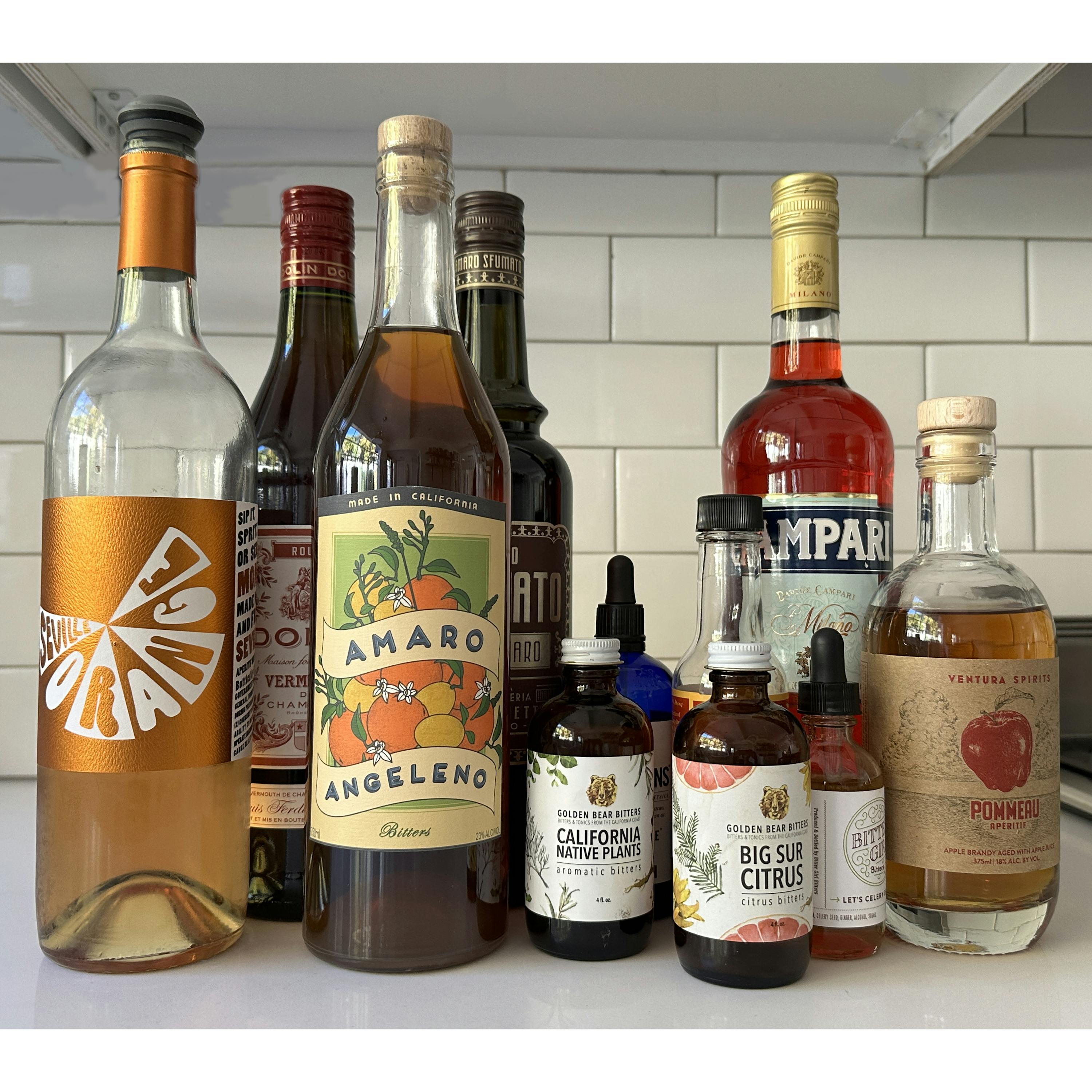
The Case of the Confusing Bitter Beverages: Vermouth, Amaro, Aperitivos, and Other Botanical Schnapps
When it comes to booze, it’s fun to be bitter: an Aperol spritz has been the drink of summer for about five years, vermouth and soda was apparentlythe "hot girl" drink of 2023, and amaro is having "a major moment." Bitter botanical beverages are everywhere, but that doesn’t mean we understand what on earth they are. Could you explain the difference between vermouth and amaro, or whether either is an aperitif or a digestif? Where do Aperol, Campari, and Chartreuse fit in, and what’s the difference between drinks called bitters and the bitters your bartender dashes into a Manhattan? This episode, Gastropod is on the case of the confusing bitter beverages, starting with their origins in alchemy. (That pre-dinner spritz is pretty magical!) Listen in now to find out why Napoleon chugged cologne, how a shopkeeper’s assistant created the preferred drink of kings and influencers, and how you should enjoy these trendy new botanical beverages.
Learn more about your ad choices. Visit podcastchoices.com/adchoices
51:1119/12/2023
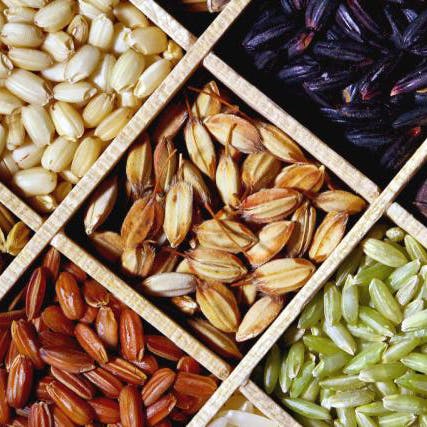
Rice, Rice Baby
Though rice might not feature in a hit 1990s Vanilla Ice rap, this grain tops the charts in other ways: it's the staple food for more than half the global population, and it's grown by more farmers than any other crop on Earth, from Japan to West Africa to Italy's Po River valley. Rice is so central that it's been used as currency, embedded itself in language, and formed the basis of beloved dishes, from sushi to jollof to risotto. But this adaptable grass has two features that have molded rice cultures and directed the grain's destiny: it can grow in an aquatic environment, but it requires cooperation to cultivate. In this episode, we explore how rice's relationship to water and community have shaped stories all over the world, from Japanese-American rice growers in California's drought-prone San Joaquin valley to Bangladeshi farmers facing flooding from climate change. Plus: could taking rice out of water not only build a better future for African-American rice farmers in the American South, but save the planet in the process?
Learn more about your ad choices. Visit podcastchoices.com/adchoices
51:4705/12/2023
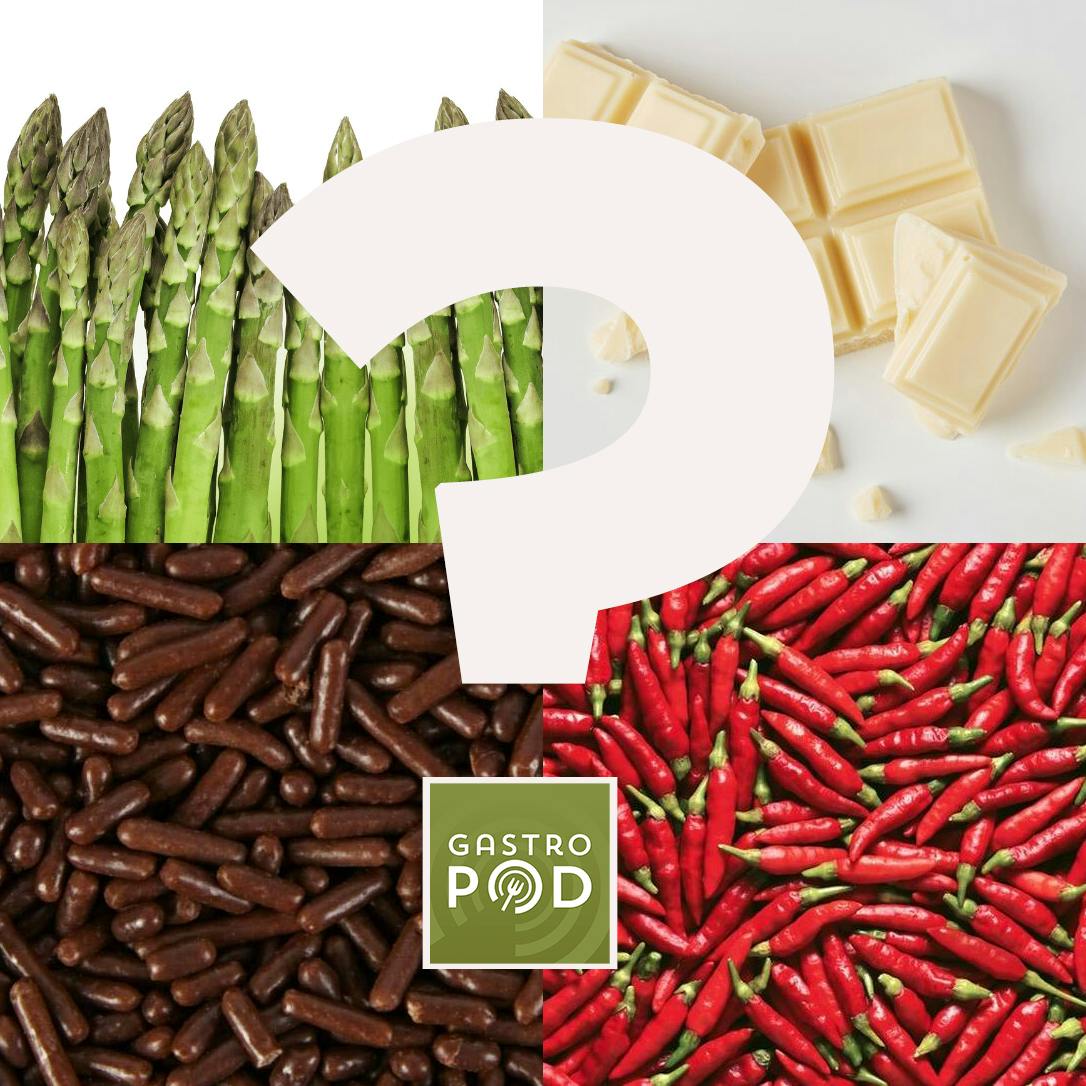
Ask Gastropod: White Chocolate, Jimmies, Chile vs. Mustard Burns, and Asparagus Pee
Is white chocolate really chocolate? What causes asparagus pee? Sprinkles or jimmies—which do you call them, and is the term ‘jimmies’ racist? Why is the heat of mustard and wasabi so different from a chile burn? This episode, Gastropod is getting to the bottom of your most pressing questions—which also means diving into some of the internet’s most controversial food debates. Listen in now as we call in historians and scientists to bust myths, solve mysteries, and find out why some people turn asparagus into the devil’s own brew!
Learn more about your ad choices. Visit podcastchoices.com/adchoices
45:1621/11/2023
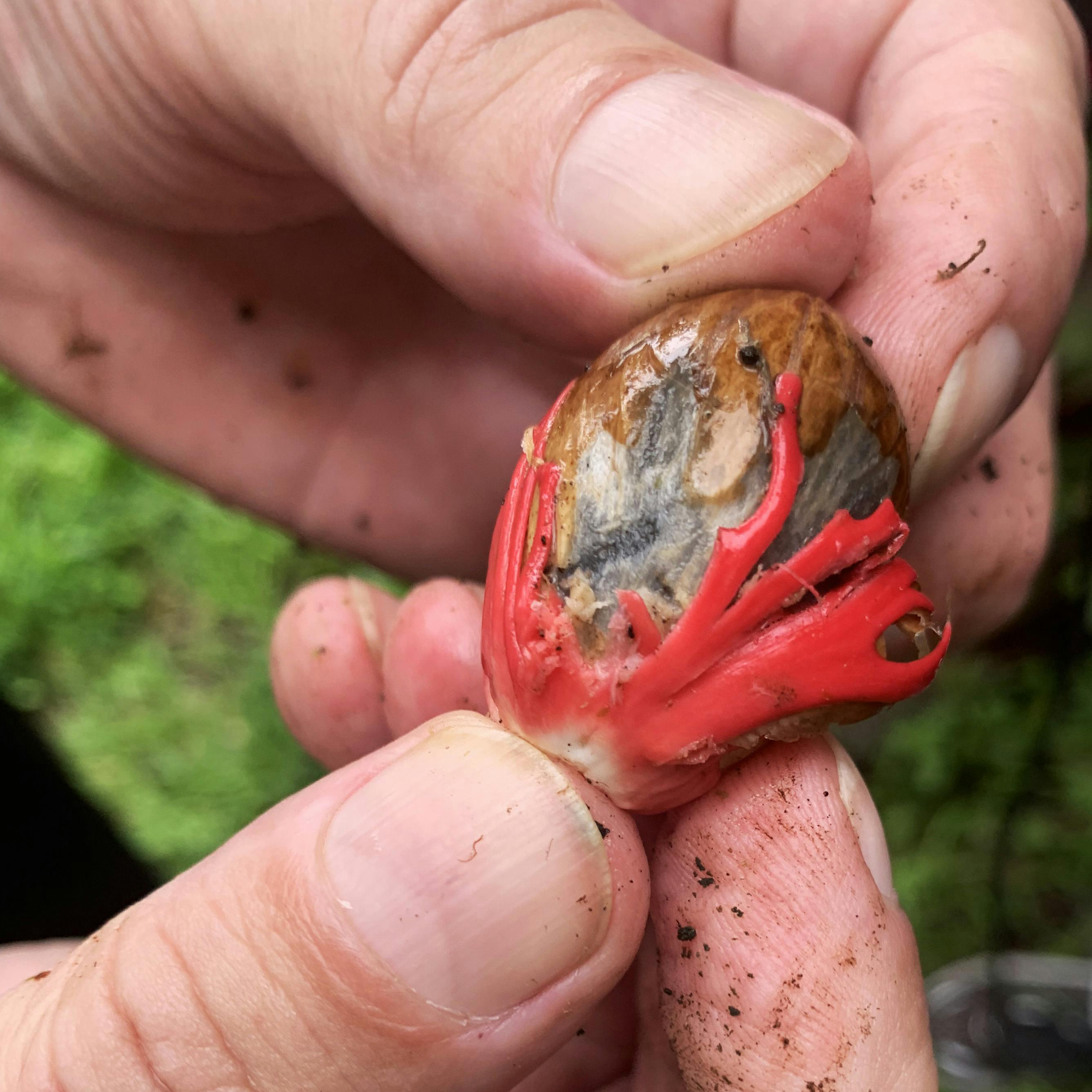
Pumpkin Spice Hero: The Thrilling But Tragic True Story of Nutmeg
No pumpkin spice latte, cookie, candle, or seasonal can of Spam (yes, really) would be the same without one of its key flavors: nutmeg, a warm, woody spice grated from the seed of a tropical fruit. But back in the 1600s, nutmeg wasn’t so common that you could put it in everything from coffee to soap. In fact, nutmeg once grew only in one place in the entire world: the Banda Islands, a Pacific archipelago too tiny to even appear on regular maps. To get their precious nutmeg, European sailors had to brave a three-year journey filled with the possibility of shipwreck, storms, scurvy, dysentery, starvation, and death—so it's not surprising that the spice was so valuable that the crew weren't allowed to have pockets in their clothing, in case they smuggled some ashore for themselves! But how did one heroic Brit, Nathaniel Courthope, end up changing the course of nutmeg history—and, with it, the fate of not just pumpkin spice lattes, but also the city of New York? Listen now for the spicy, swashbuckling tale behind the season's favorite flavor.
Learn more about your ad choices. Visit podcastchoices.com/adchoices
41:5807/11/2023
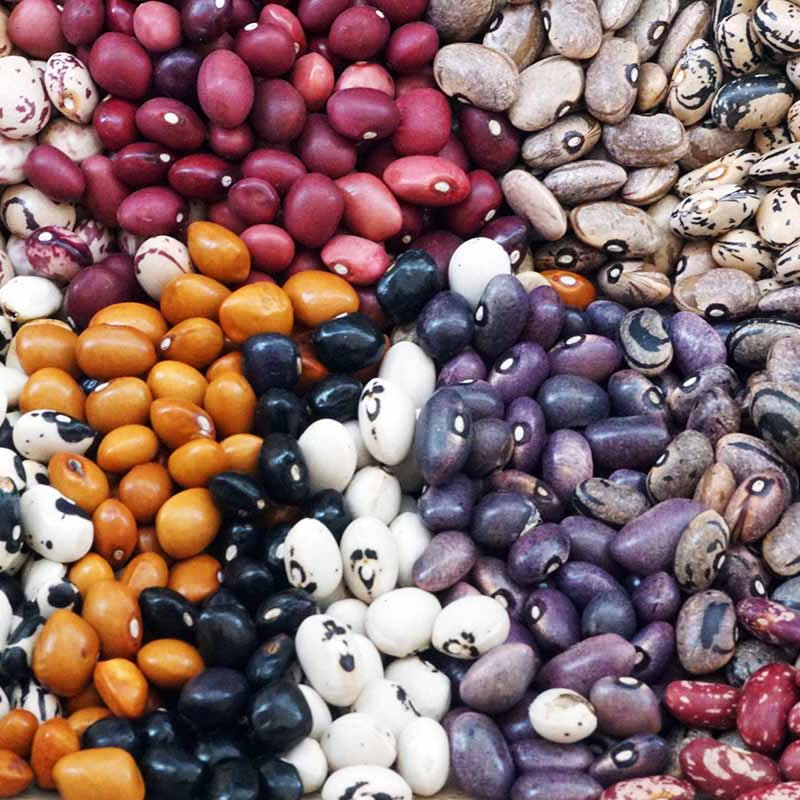
Beans, Beans, the Magical Fruit
Botanically, bean pods are indeed fruits, and, honestly, they are also pretty magical. And we’re clearly not the only ones to think that: beans are the unsung hero of history. The fact that they were domesticated an astonishing seven different times in different places around the world shows how essential beans were to early humans, wherever they lived; in Europe, Italian author and polymath Umberto Eco credits the bean with saving civilization itself. Lately, however, the humble bean has found its fan base declining. In Northern Europe, Australia, Canada, and the United States, most people barely eat beans at all. This episode—our love song to beans—we're exploring the story of the bean's fall from grace, as well as the heirloom varieties and exclusive club that are making beans cool again. Plus, we visit with the Ugandan breeder working on Beans 2.0, which will take a third less time to cook. But can anybody do anything about one of beans' most notorious side-effects? Yes, we're talking farts: we're on the case to discover whether scientists can develop a gas-free bean. Listen in as we spill the beans on one of our favorite foods.
Learn more about your ad choices. Visit podcastchoices.com/adchoices
49:2824/10/2023
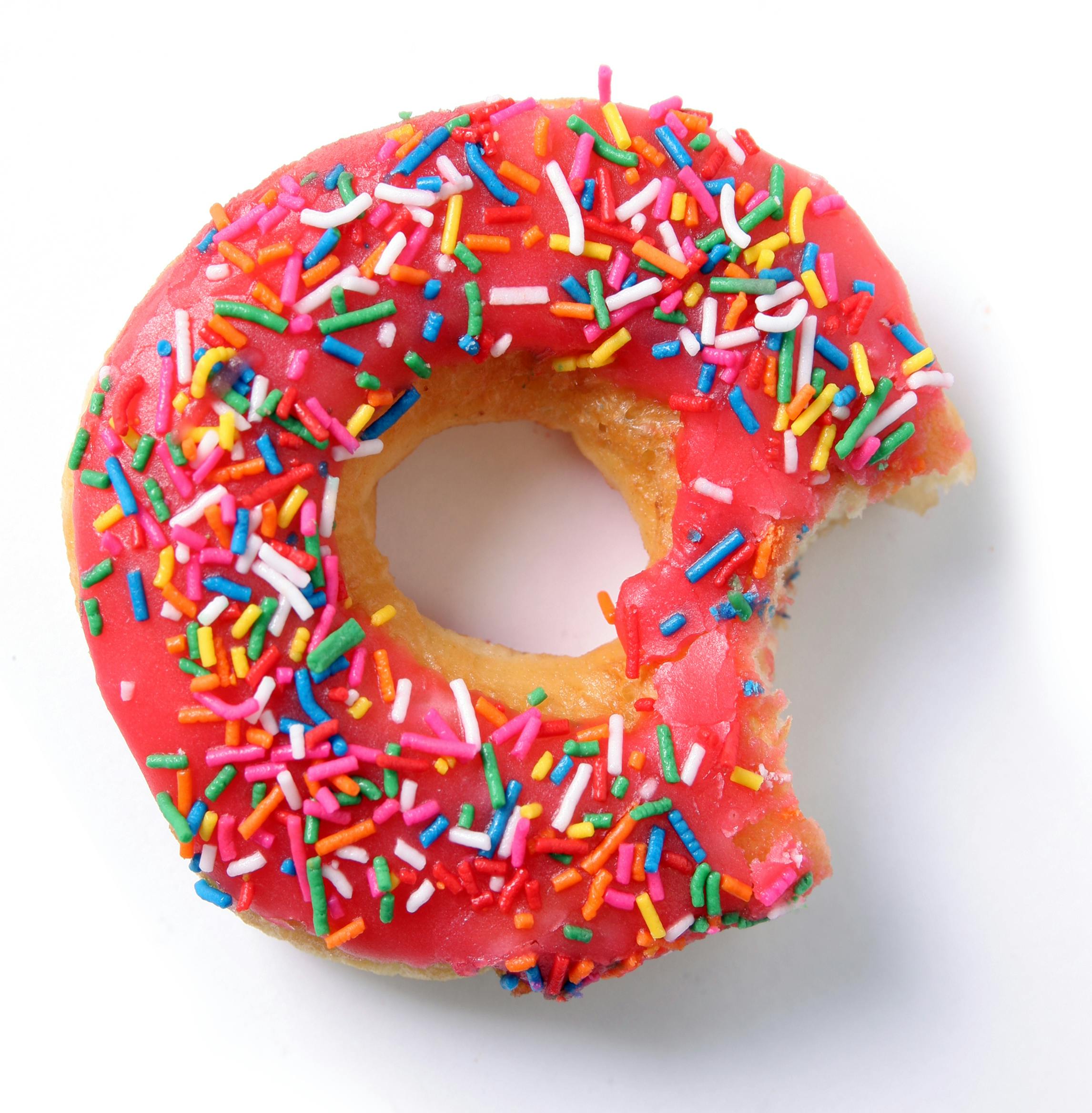
Raised and Glazed: Don’t Doubt the Doughnut
Doughnuts are ubiquitous in the United States: whether you're at party, a coffee shop, or the break room at work, you’re likely to find a box of iced rings covered with sprinkles. But some kind of deep-fried dough blob is a treat found in cultures around the world—so why have doughnuts become uniquely American? And what’s with the name, when there’s rarely a nut found in this dough? This episode, we're taking a roll around the story of these sweet circles, from their debut in Dutch New Amsterdam to the momentous origins of the doughnut hole. Listen in now, as we meet the Salvation Army volunteers who cemented the doughnut's popularity on the battlefields of both world wars, the Massachusetts middle-school dropout who created a doughnut empire, and the Cambodian-American Donut King of California.
Learn more about your ad choices. Visit podcastchoices.com/adchoices
48:2510/10/2023
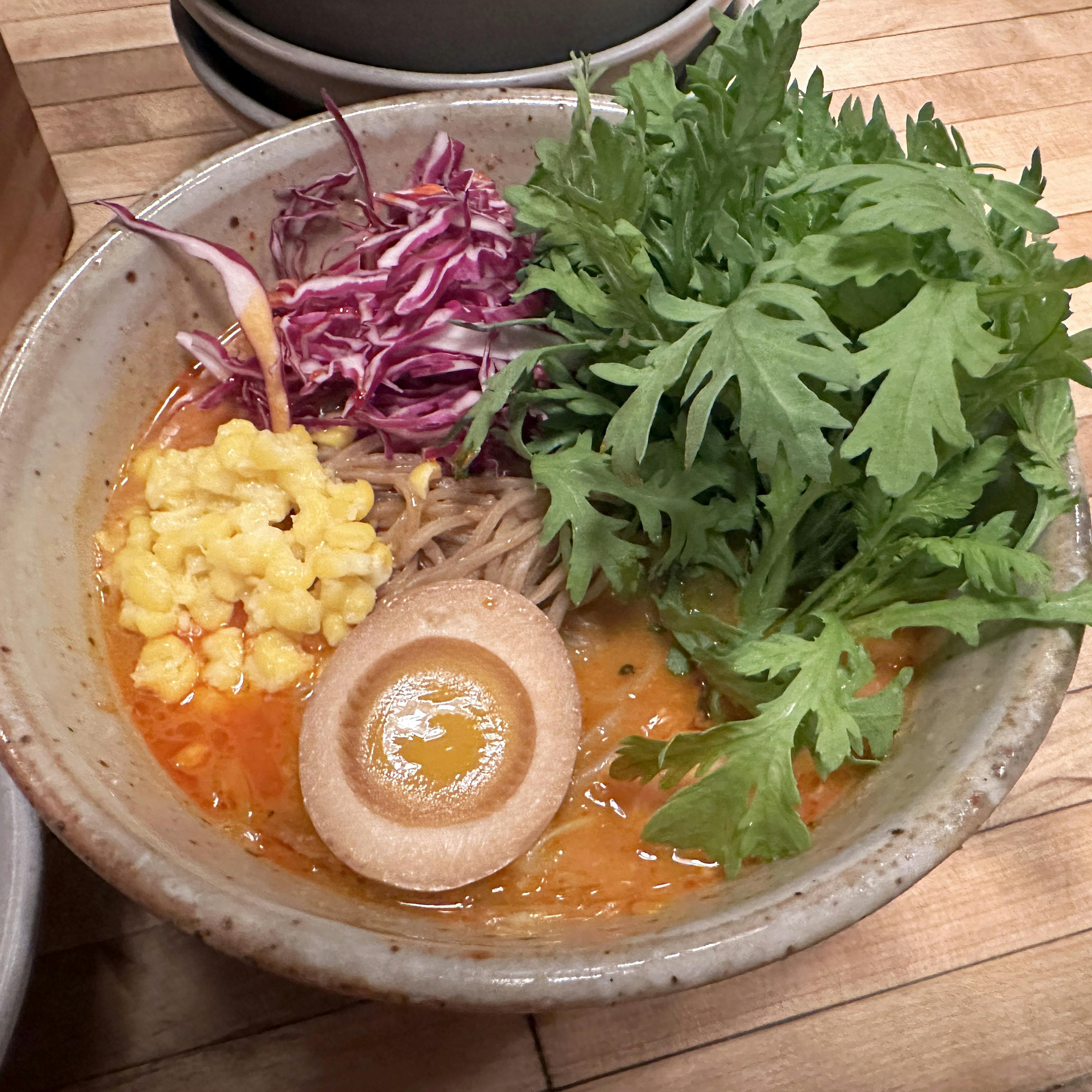
We'd Like to Teach The World to Slurp: The Weird and Wonderful Story of Ramen's Rise to Glory
Savory, chewy, and, above all, slurp-able, a delicious bowl of ramen is one of the triumphs of Japanese cuisine. That's also a bit odd, because, for most of Japanese history, heavy, meaty, wheaty noodle soup would have had no place in the archipelago's otherwise bland and mostly pescatarian cuisine. This episode, we bust ramen myths and reveal ramen secrets, with the story of how Chinese influencers, U.S. food aid, and an economic boom built the quintessential Japanese soup—and how ramen was transformed from a quick street-food bite for workers to both the three-minute staple of students everywhere in its instant form and the craft ramen that has people standing in lines for hours. Plus: how ramen noodles helped prevent a prison riot, and Cynthia and Nicky go head-to-head in an epic (failure of a) slurp-off.
Learn more about your ad choices. Visit podcastchoices.com/adchoices
48:3326/09/2023

First Foods: Learning to Eat (encore)
How do we learn to eat? It may seem like an obvious question, but it's actually quite a complicated process. Who decided that mushed-up vegetables were the perfect first food—and has that always been the case? What makes us like some foods and hate others—and can we change? Join us to discover the back story behind the invention of baby food, as well as the latest science on flavor preferences and tips for how to transform dislikes into likes. (encore)
Learn more about your ad choices. Visit podcastchoices.com/adchoices
50:0919/09/2023
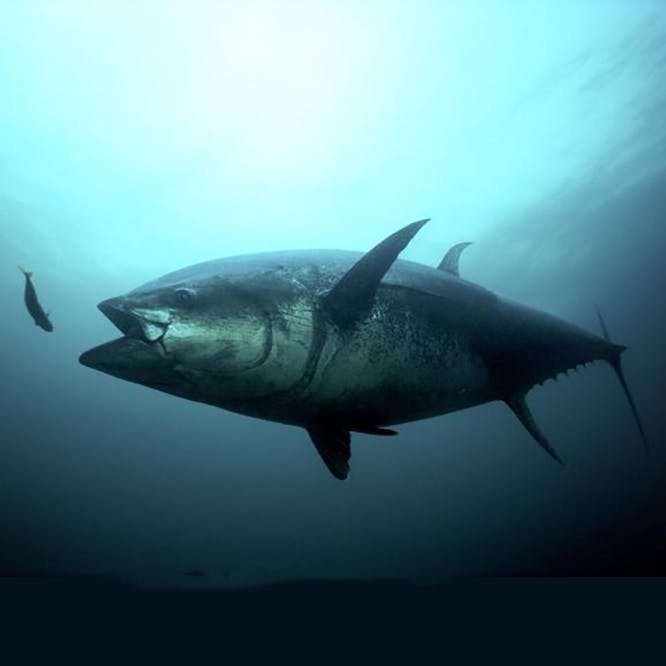
All Aboard the Tuna Rollercoaster! Join the King of Fish for a Wild Ride that Involves Ernest Hemingway and (of course) Jane Fonda
A bluefin tuna can grow to the size of a car, weigh twice as much as a grand piano, swim as fast as a running lion, and keep its muscles at human body temperature even in the ocean's coldest depths. It's also wildly delicious, with a sweet, briny, but meaty taste and a melt-in-your mouth texture that has made it the most expensive fish in the world, with a single bluefin selling for a record-breaking $3 million in 2019. Not bad for a fish that, until recently, New England fishermen used to have to pay to dispose of. This episode, we've got the story of how the king of fish went from the coin of the realm in ancient Byzantium to cat food before bouncing back, in a tale that involves Alexander the Great, Ernest Hemingway, and a couple of Canadian coffin-makers. But popularity has proven a double-edged sword for the bluefin: in the past few decades, it's been fished almost to extinction, while also becoming the poster child for saving the oceans. These days there's big news in tuna world, and, for the first time in years, environmentalists and scientists have hope for the bluefin's future. So is it time to start ordering maguro again at the sushi bar?
Learn more about your ad choices. Visit podcastchoices.com/adchoices
45:3905/09/2023

The Keto Paradox: Fad Diet *and* Life-Saving Medical Treatment
What do some epilepsy patients have in common with tech bros, bodybuilders, and Joe Rogan? The high-fat, carb-shunning diet known as keto, whose history dates back much further than its 2010s rise to fame. In this episode, Gastropod traces how a medical treatment pioneered more than 2,500 years ago was refined in the 1920s to treat seizures. We trace its wild ride in and out of fashion, with cameos from Robert Atkins, the 80s exercise craze, and Meryl Streep. And, of course, we've got the myth-busting science on what ketosis and ketones really are, the dangers of eating this way to lose weight, and the reason this diet can be life-saving—for people with a very specific medical condition. Bust out the butter (but please don't put it in coffee) and join us down the keto rabbit hole.
Learn more about your ad choices. Visit podcastchoices.com/adchoices
43:1522/08/2023

Secrets of Sourdough (encore)
Today, you can find a huge variety of breads on supermarket shelves, only a few of which are called "sourdough." For most of human history, though, any bread that wasn't flat was sourdough—that is, it was leavened with a wild community of microbes. And yet we know surprisingly little about the microbes responsible for raising sourdough bread, not to mention making it more nutritious and delicious than bread made with commercial yeast. For starters, where do the fungi and bacteria in a sourdough starter come from? Are they in the water or the flour? Do they come from the baker's hands? Or perhaps they're just floating around in the foggy air, as the bakers of San Francisco firmly believe? This episode, Cynthia and Nicky go to Belgium with two researchers, fifteen bakers, and quite a few microbes for a three-day science experiment designed to answer this question once and for all. Listen in for our exclusive scoop on the secrets of sourdough. (encore presentation)
Learn more about your ad choices. Visit podcastchoices.com/adchoices
48:2908/08/2023

Watch It Wiggle: The Jell-O Story (encore)
It's been described as the ultimate status symbol for the wealthy, as the perfect solution for dieters and the sick, and, confusingly, as a liquid trapped in a solid that somehow remains fluid. What could this magical substance be? In case you haven't guessed, this episode, we're talking about Jell-O! Or, to be more precise, jelly—not the seedless kind you spread on toast, but the kind that shimmers on your plate, wiggles and jiggles on your spoon, and melts in your mouth. Jelly's story is as old as cooking itself—it is one that involves spectacular riches and dazzling displays, as well as California's poet laureate and some very curious chemistry. (encore presentation)
Learn more about your ad choices. Visit podcastchoices.com/adchoices
49:0625/07/2023
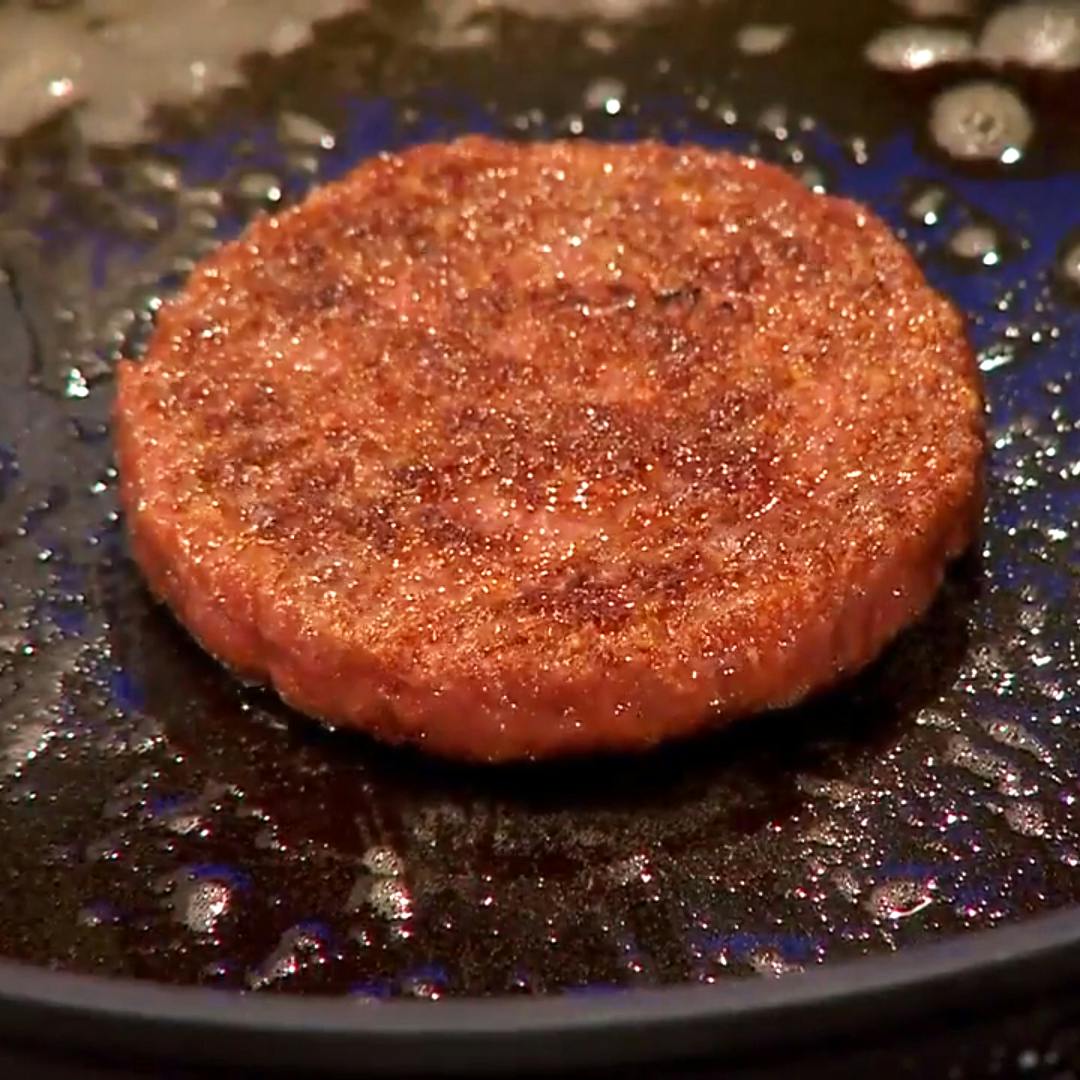
Where's the Beef? Lab-Grown Meat is Finally on the Menu
Can we really have our burger, eat it—and never need to kill a cow? Growing meat outside of animals—in a lab or, these days, in shiny steel bioreactors—promises to deliver a future in which we can enjoy sausages and sushi without guilt, and maybe even without sending our planet up in smoke. For years, it's seemed like science fiction, but it's finally a reality: this month, Americans will get their first chance to buy cultivated meat in a restaurant. But how exactly do you get chicken nuggets, BLTs, and bluefin sashimi from a bunch of cells growing in large metal vats? Does this new cultivated meat taste any good? Can enough be grown to replace industrial meat? And, if so, is this new technology actually an improvement on industrial animal agriculture and fishing? Gastropod is on the case! Join us this episode as we sink our teeth into a whole lot of lab-grown lunches, uncover the science behind the sci-fi, and investigate whether the companies making cultivated meat can actually fulfill the lofty promises they make.
Learn more about your ad choices. Visit podcastchoices.com/adchoices
54:5111/07/2023

The Incredible Egg (encore)
We love eggs scrambled, fried, or poached; we couldn't enjoy a quiche, meringue, or flan without them. But for scientists and archaeologists, these perfect packages are a source of both wonder and curiosity. Why do eggs come in such a spectacular variety of colors, shapes, and sizes? Why are we stuck mostly eating chicken eggs, when our ancestors feasted on emu, ostrich, and guillemot eggs? This episode, we explore the science and history of eggs, from dinosaurs to double-yolkers! (encore episode)
Learn more about your ad choices. Visit podcastchoices.com/adchoices
44:5627/06/2023

Good Shit: How Humanure Could Save Agriculture—and the Planet
For most of us, when we sit on the porcelain throne to drop the deuce, priority number one is flushing and never having to think about it again. But it might be time to rethink our stink: all around the world, people are talking about using human waste for good, applying it as fertilizer to grow our food instead of just washing it down the miles of pipes that undergird urban sewage systems. "Ew" is a common response, along with "yuck!" Is using poop to grow food a good idea—or even safe? We’re getting our shit together to find out! On this episode of Gastropod, how human waste went from being so valuable you could go to jail for stealing it, to causing such a stench it shut down Parliament in Victorian London and led to the invention of the modern sewage system—and why figuring out how to start saving our poop (and pee!) once again could give us cleaner energy, healthier waterways, and lots of delicious food. Listen in now: if you like to eat, it's time to start giving a crap about your crap.
Learn more about your ad choices. Visit podcastchoices.com/adchoices
51:0320/06/2023

Gettin' Fizzy With It (Encore)
'Tis the season for a refreshing glass of bubbly—but this episode we're not talking wine, we're talking seltzer. America is in the throes of a serious seltzer craze, with consumption of the bubbly stuff doubling in only a decade, from 2004 to 2014. But where does seltzer come from, and why is it called "seltzer," rather than simply "sparkling water"? Is there any truth to the rumors that seltzer can combat indigestion—or that it will rot our teeth? Why are all the hipsters crushing cans of LaCroix, and what's the story behind Polar's ephemeral sensation, Unicorn Kisses? (Encore presentation)
Learn more about your ad choices. Visit podcastchoices.com/adchoices
40:3513/06/2023
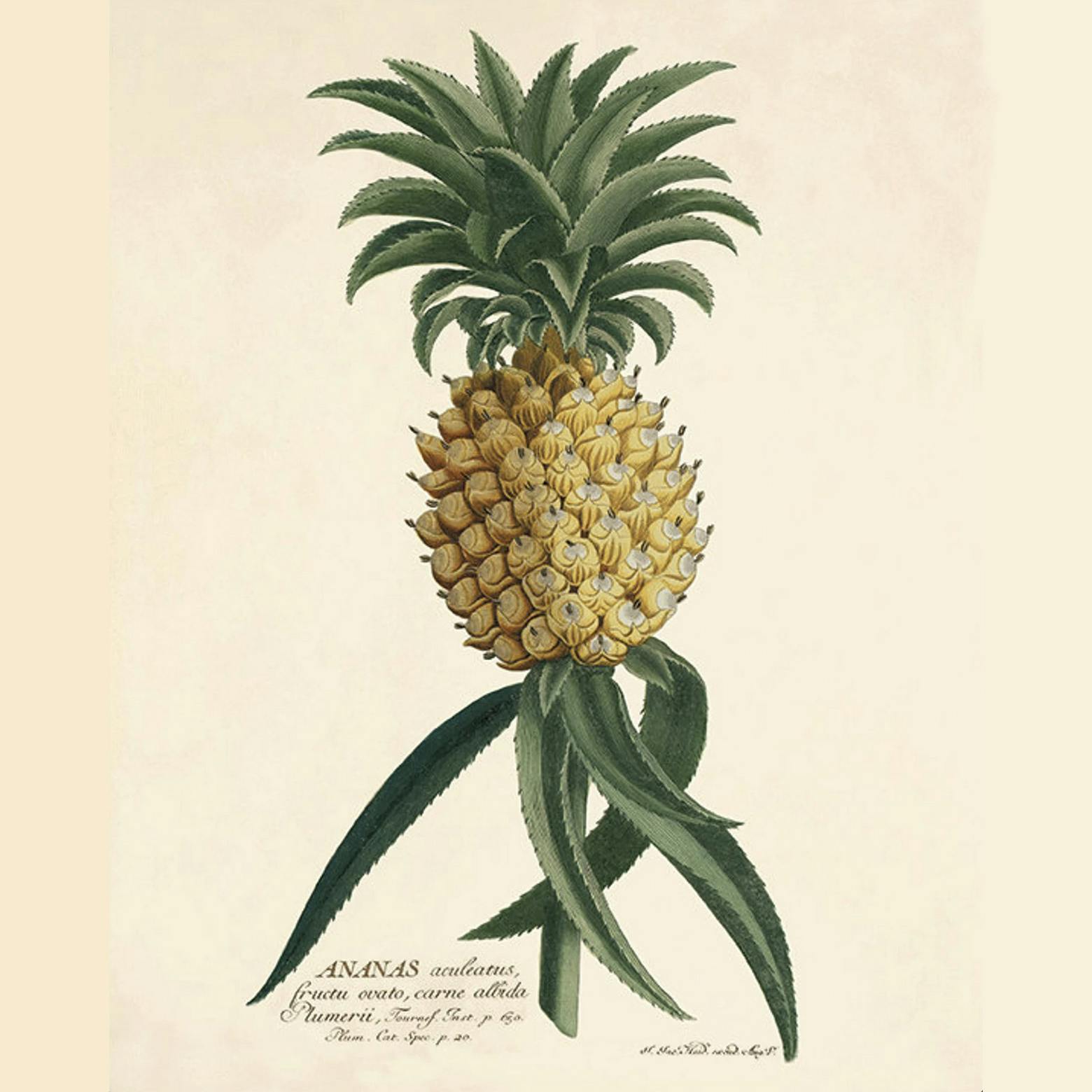
Who's Eating Who: Pineapples and You
What was the hottest accessory for late 1600s European dining rooms? The pineapple! Explorers had recently brought this spiky tropical fruit over from the Americas, and in short order it became the Gucci purse of its day—so exciting and desirable that it not only commanded big bucks, but led to a sort of gardening arms race to figure out how they might be grown in chilly northern Europe. In this episode, we get to the core of how this "king of fruit" inspired obsession and invention—plus, we head back to Hawai'i to learn how it transformed the islands, and, in the process, was itself transformed from an exotic rarity to a pantry-staple topping for pizza and cottage cheese. If you like piña coladas and fruits that can dissolve your skin, join us for all of the juicy details!
Learn more about your ad choices. Visit podcastchoices.com/adchoices
39:3906/06/2023
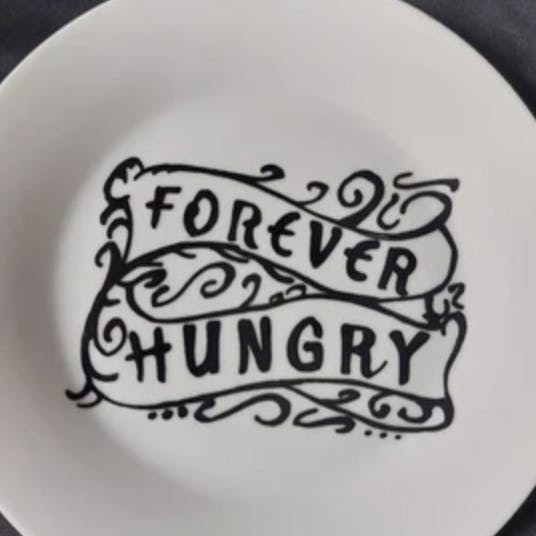
You've Lost That Hungry Feeling
Whether it's via TikTok or the morning news, you’ve probably heard the recent hype (and hand-wringing) about new prescription weight-loss medications with names like Ozempic, Wegovy, and Mounjaro. These drugs were originally developed to treat diabetes, but, in some patients, they've had a surprising side effect: they seem to silence feelings of hunger, leading to significant weight loss. This episode, Gastropod goes behind the headlines to ask: What is hunger, anyway? And what do we know about how to switch it on or off? Join us for a story that involves lizard saliva, synthesizer shopping, and a disorder that can lead people to eat until their stomachs burst, as we explore these universal feelings—hunger and fullness—that shape our lives, and bookend every meal.
Learn more about your ad choices. Visit podcastchoices.com/adchoices
55:2223/05/2023
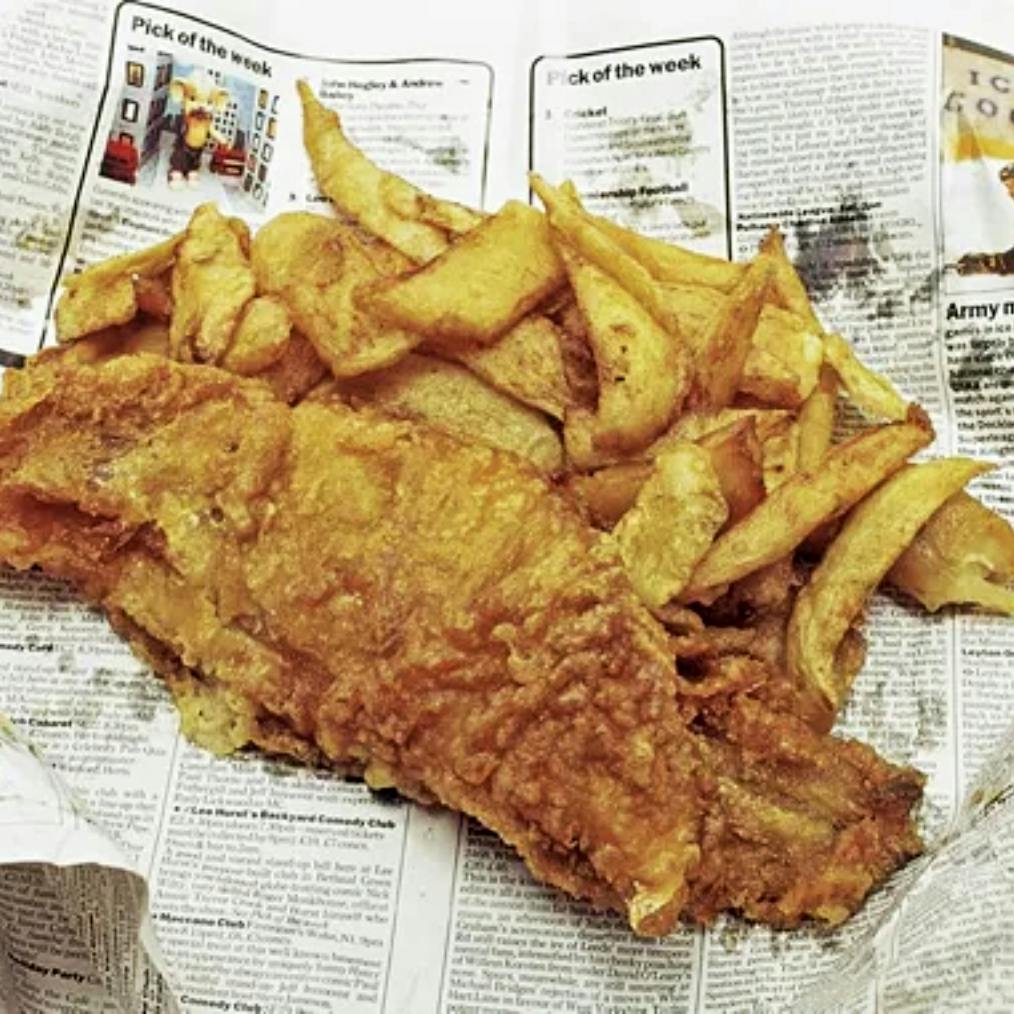
Fish & Chips: Uncovering the Forgotten Jewish and Belgian Origins of the Iconic British Dish
Fish & chips: a golden hunk of battered cod, accompanied by thick-cut French fries, lightly sprinkled with malt vinegar, and wrapped up in a newspaper.... It's as British as cricket, cream teas, the class system, and colonialism, but it's actually the relatively recent marriage of a Jewish fish-frying tradition and a Franco-Belgian potato snack. What's more, in something of a twist, the fish itself—cod, a burly bottom-feeder with tender, flaky white flesh—ended up helping fuel U.S. independence. This episode, we're telling the peculiar story of how two non-British foods became such a quintessentially British dish—and how our appetites transformed international relations, as well as an entire ocean ecosystem.
Learn more about your ad choices. Visit podcastchoices.com/adchoices
44:2809/05/2023





